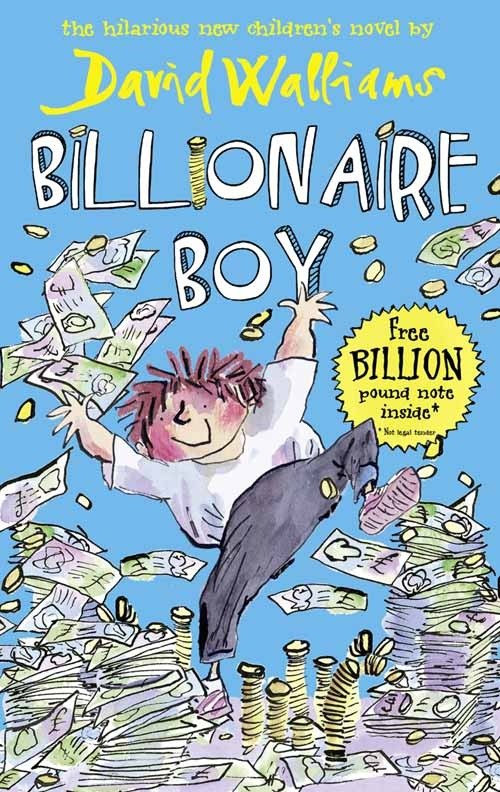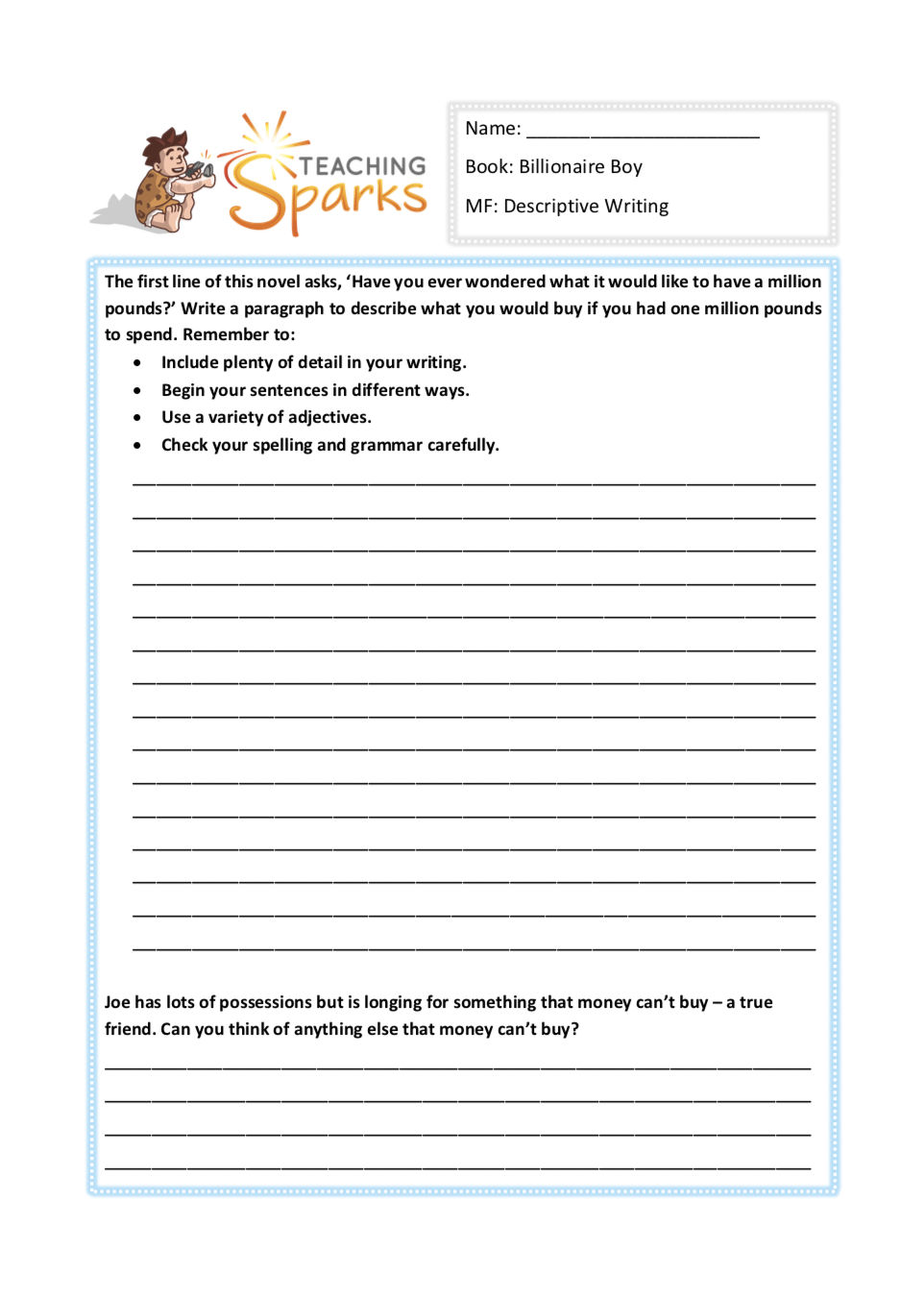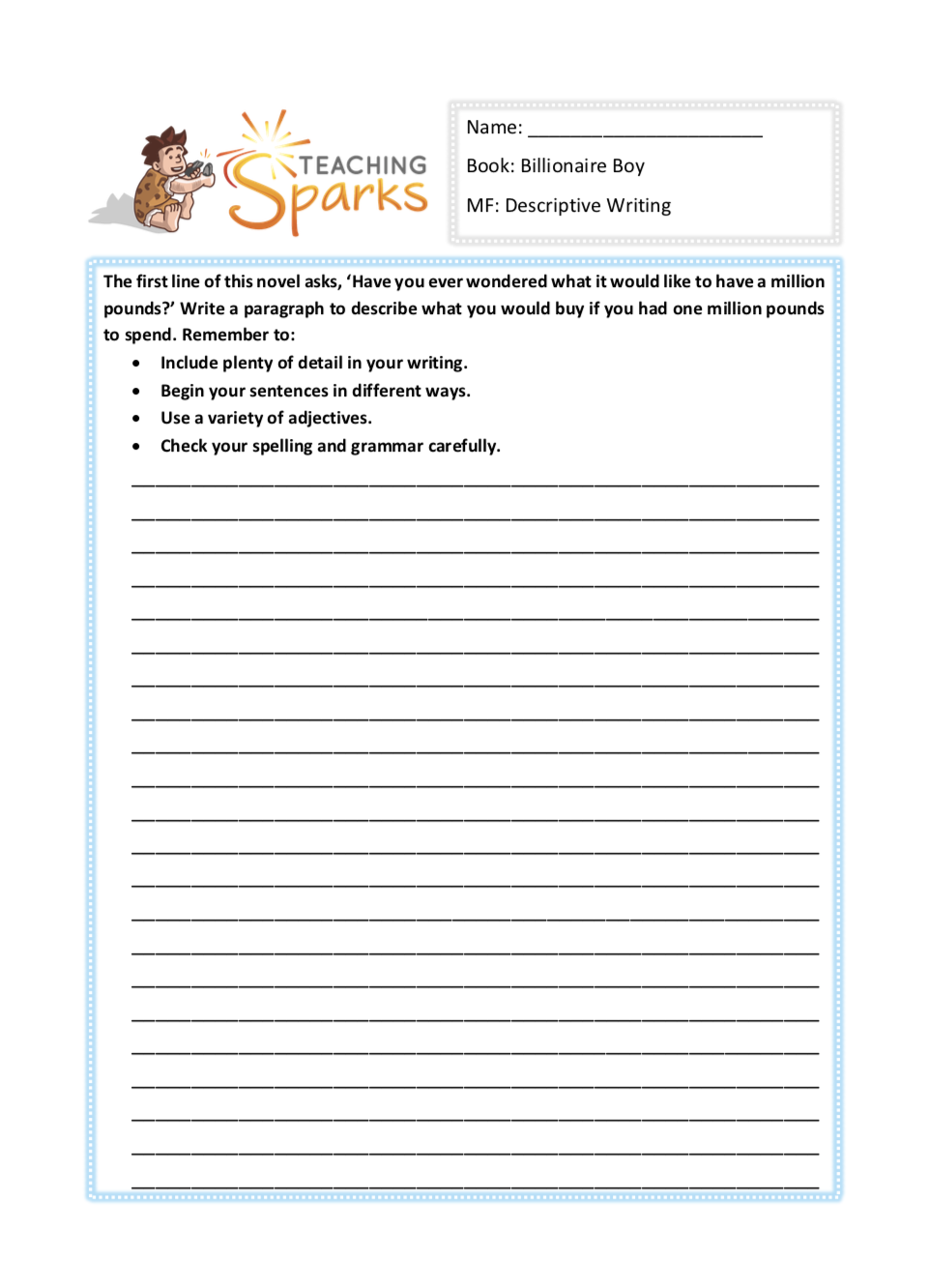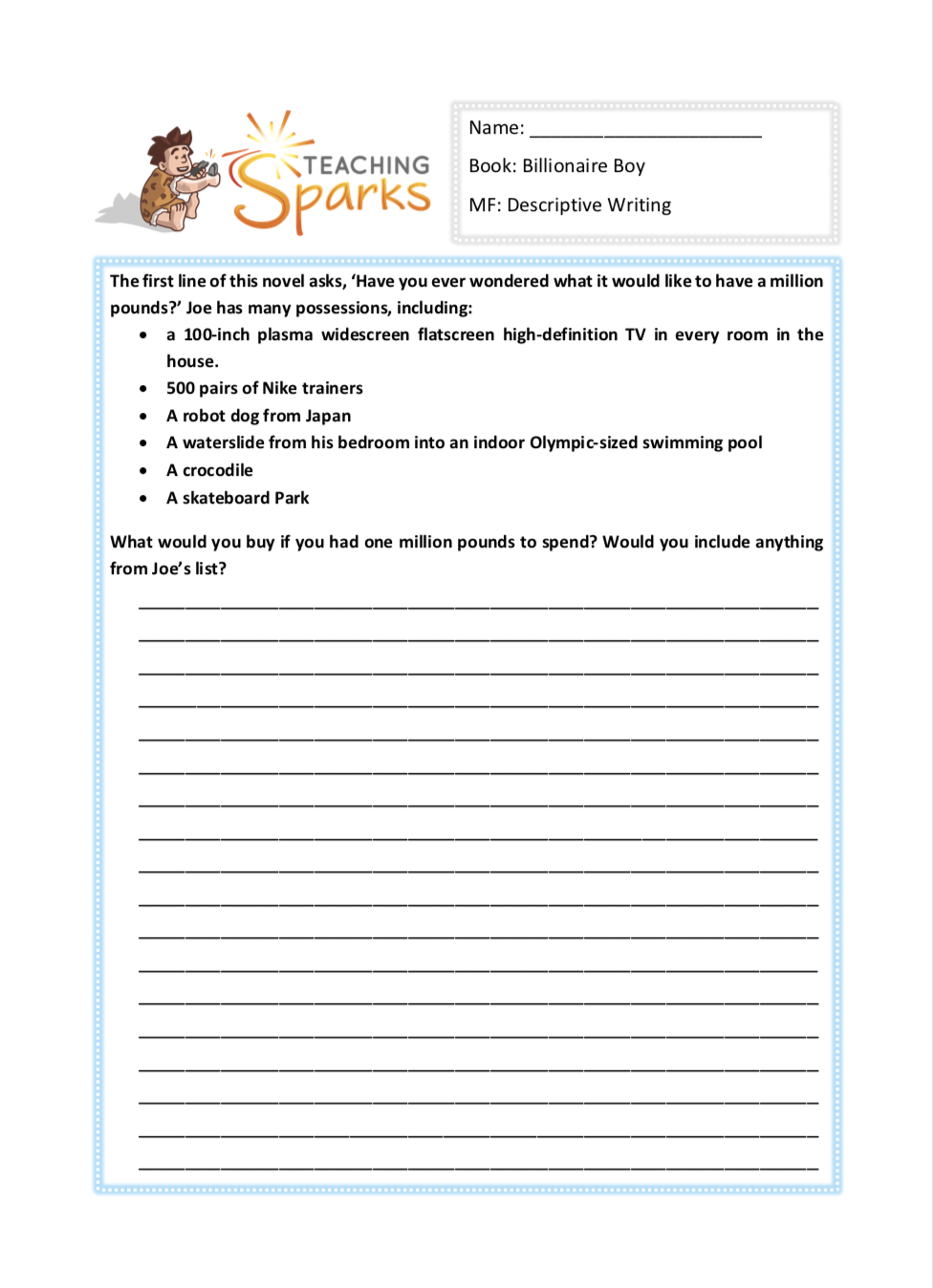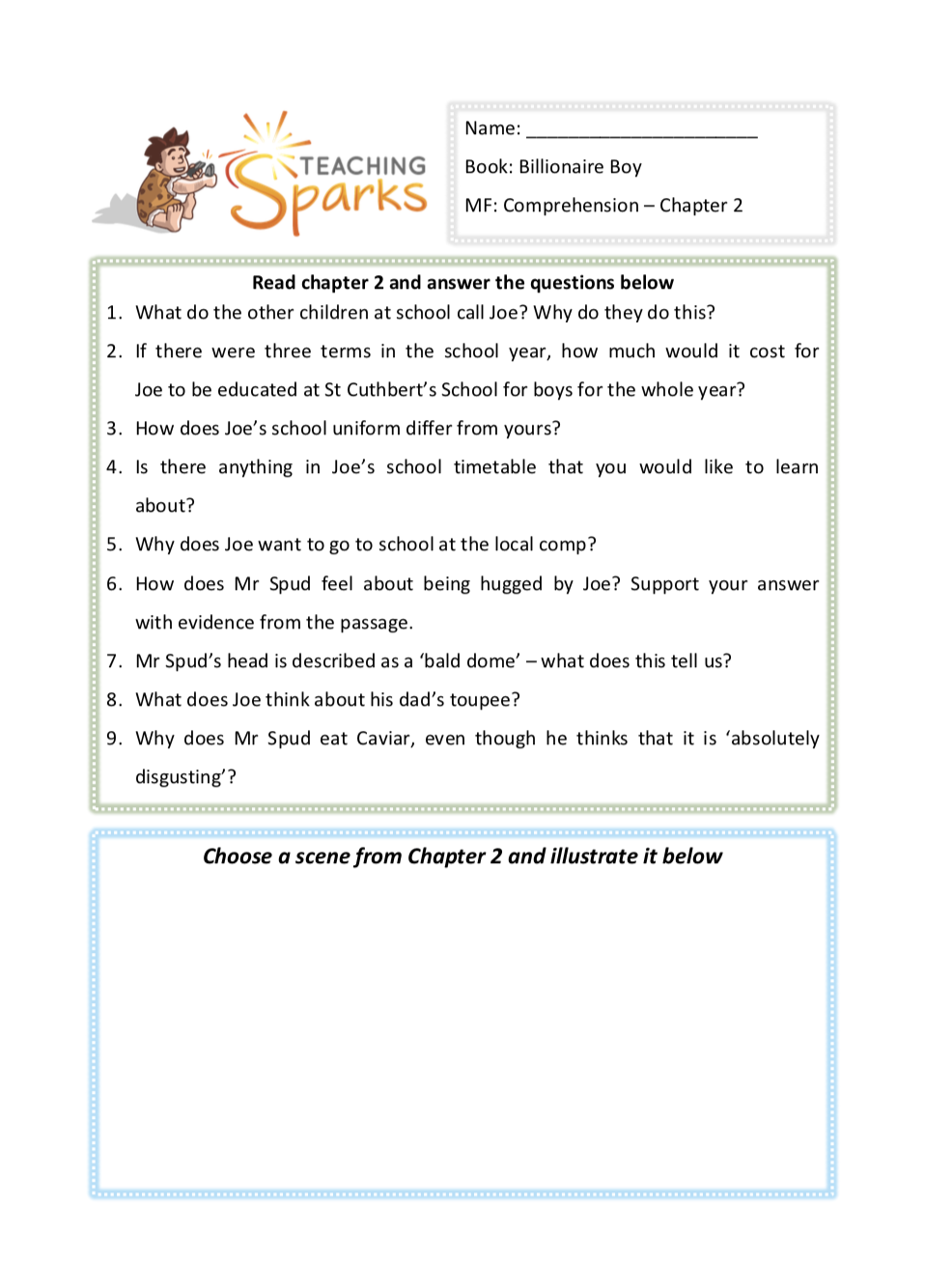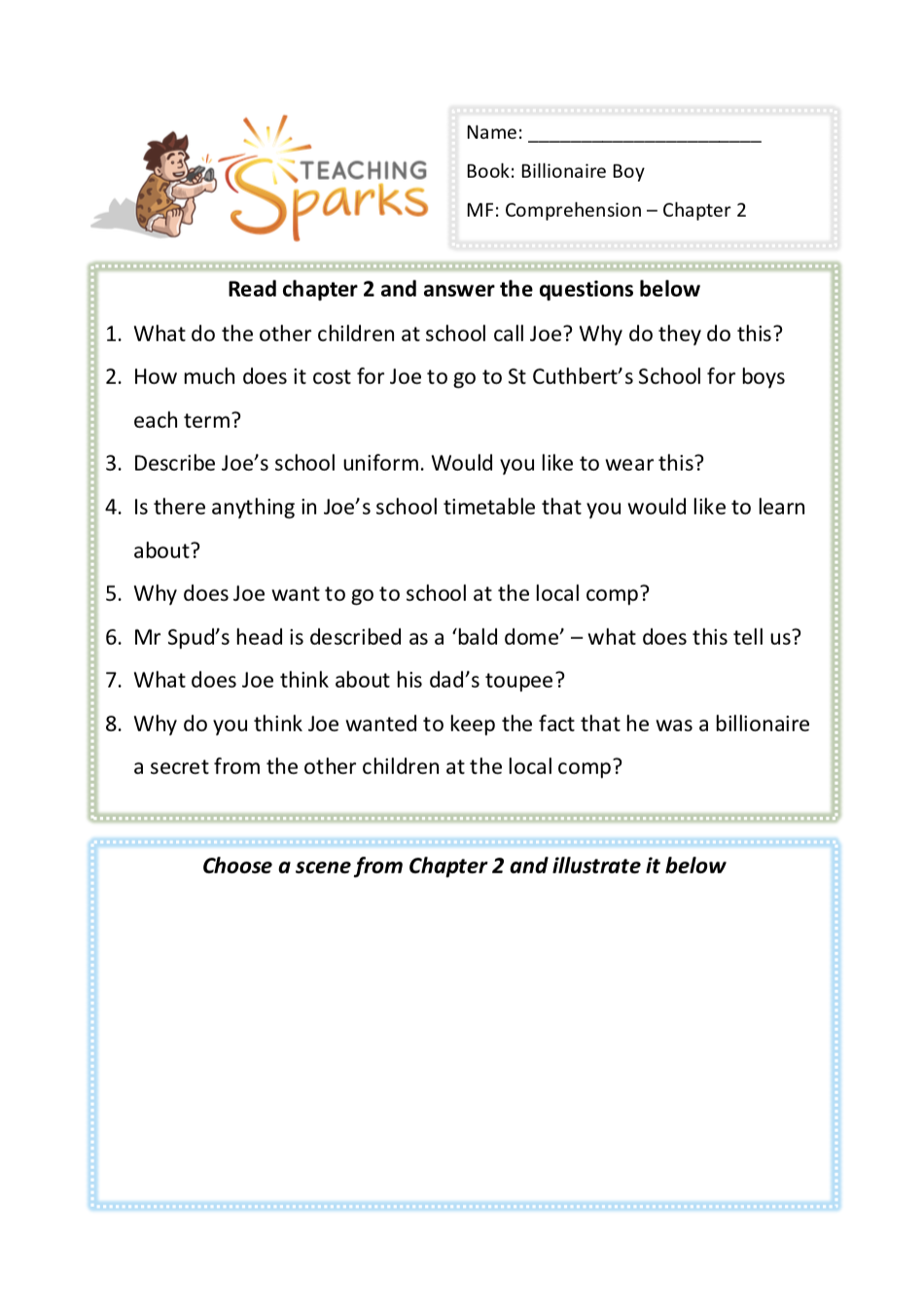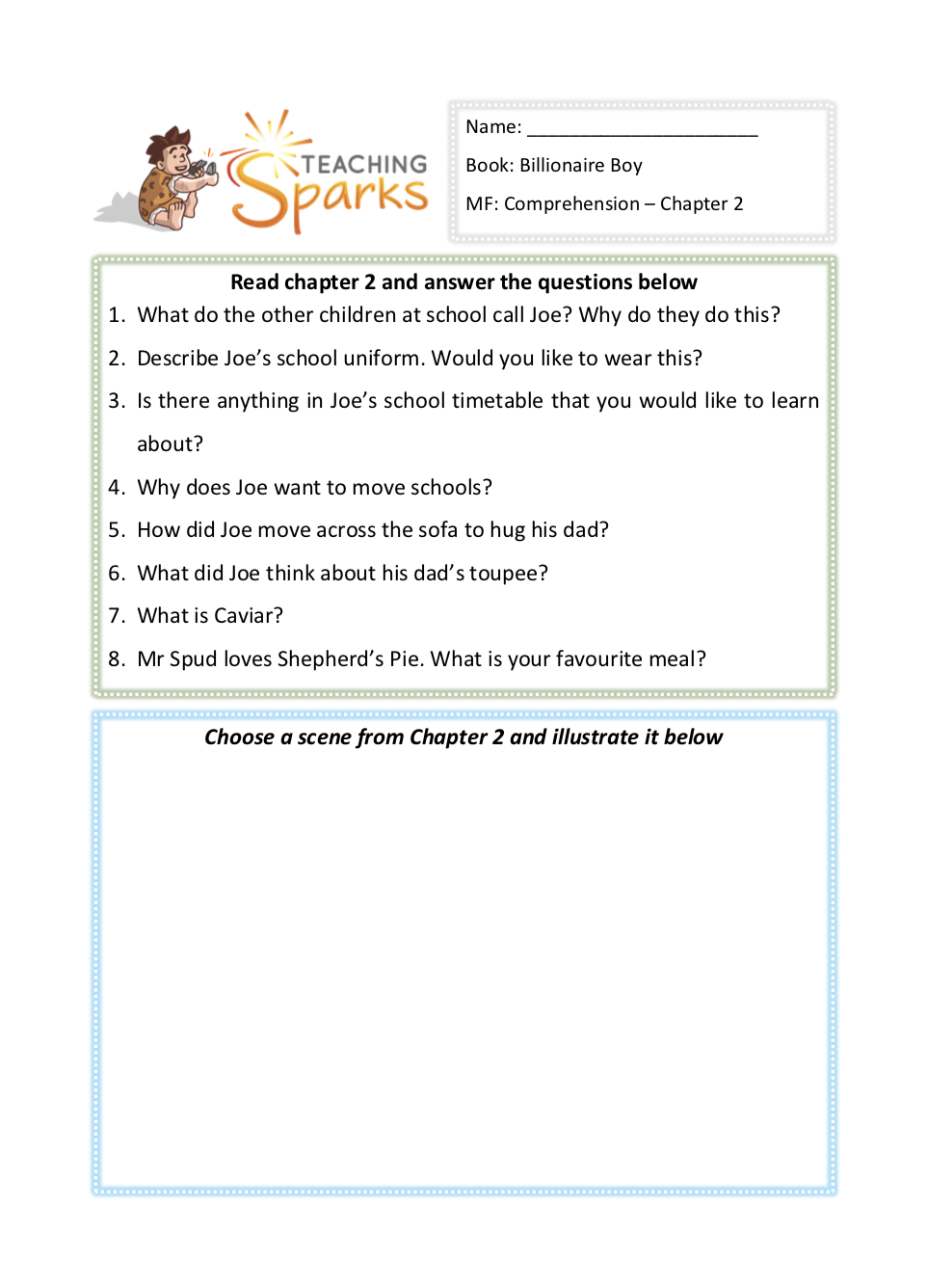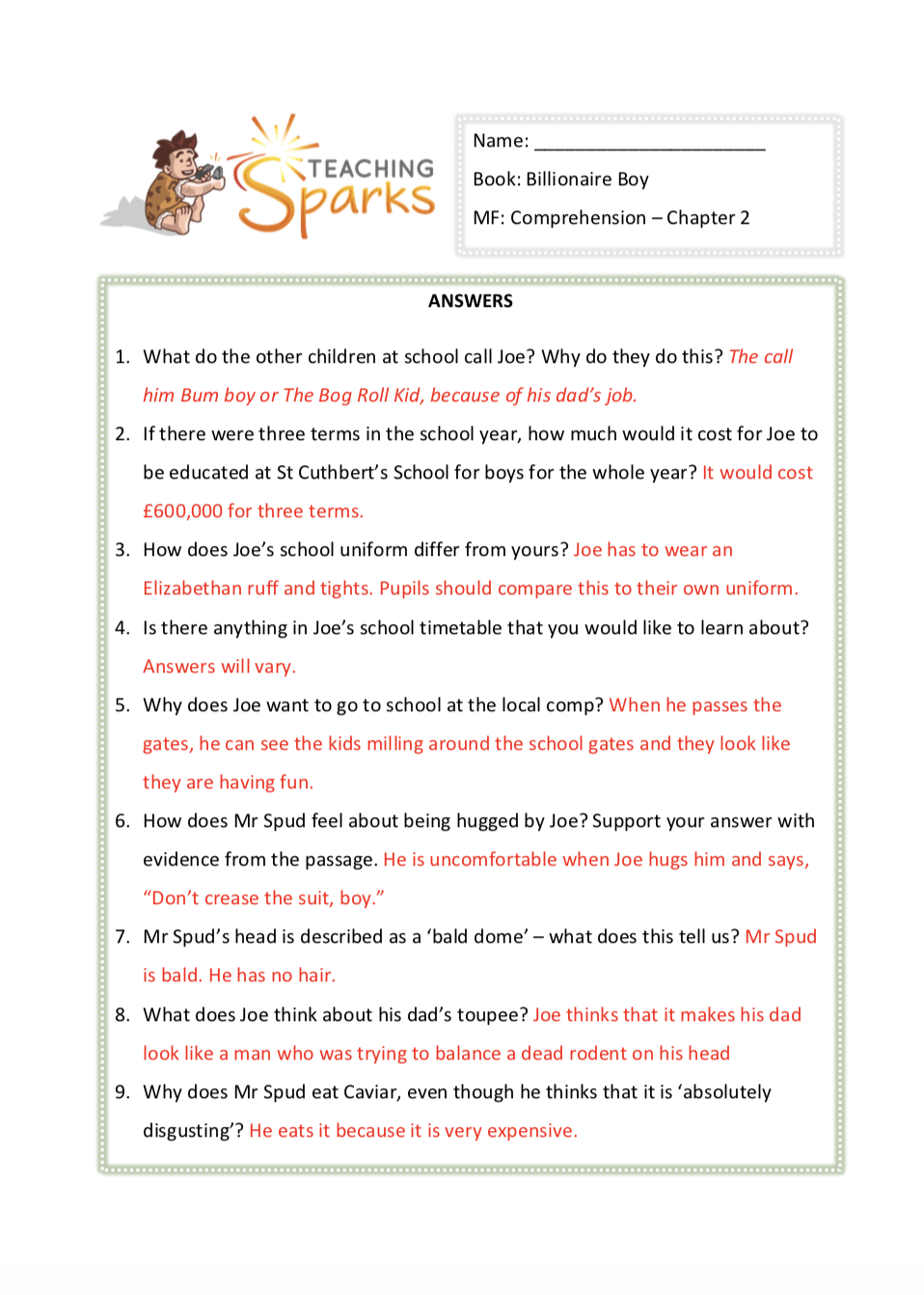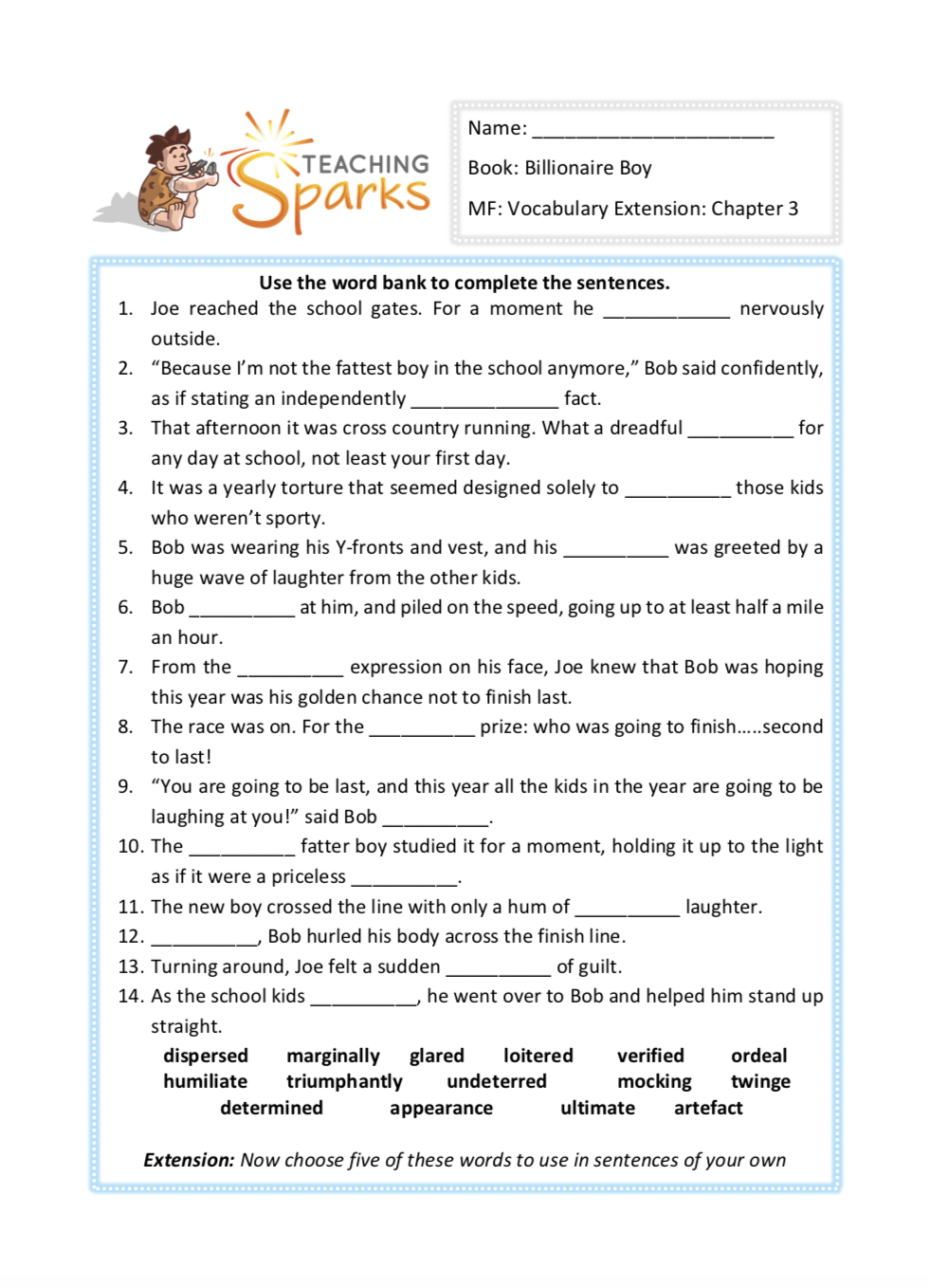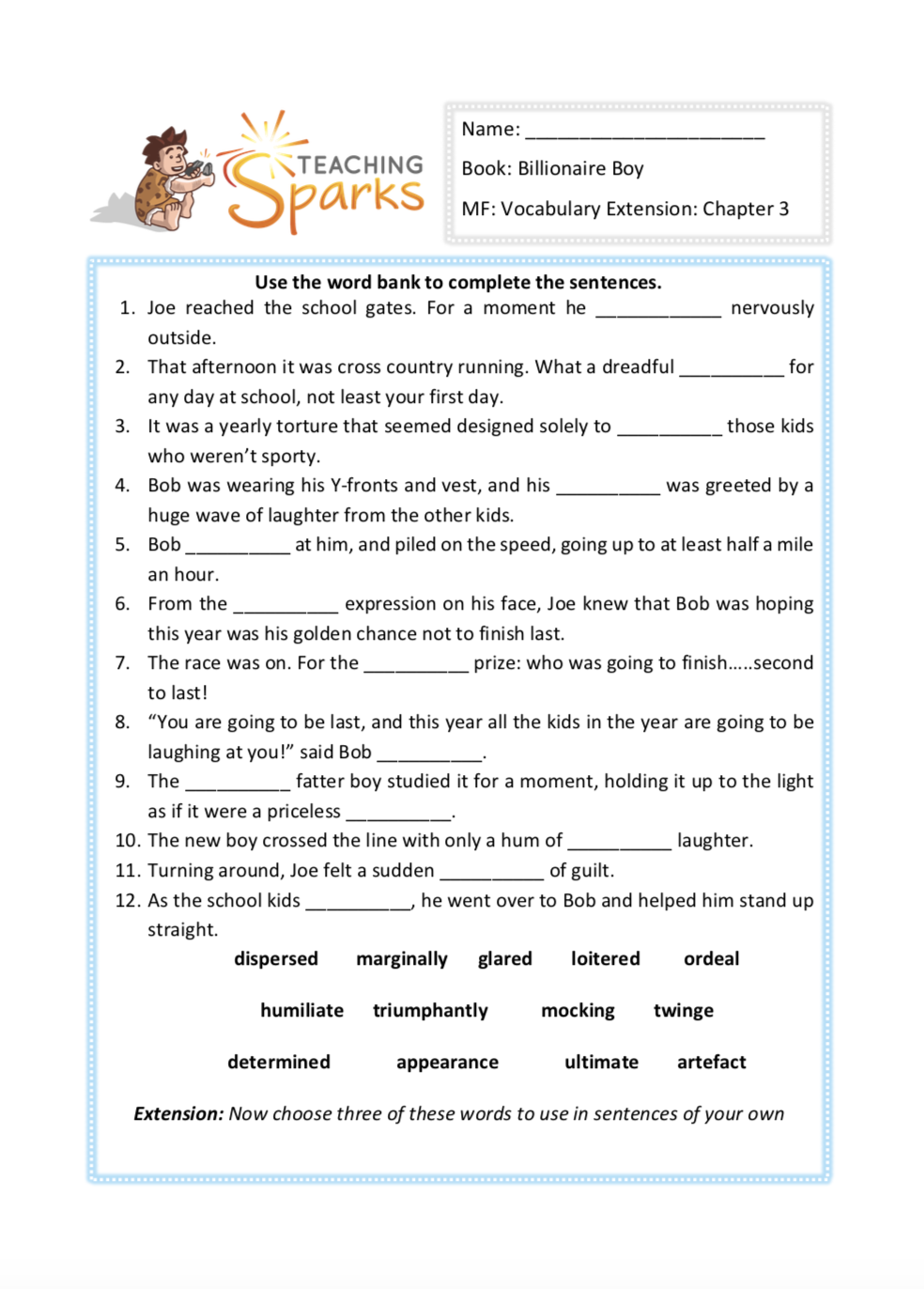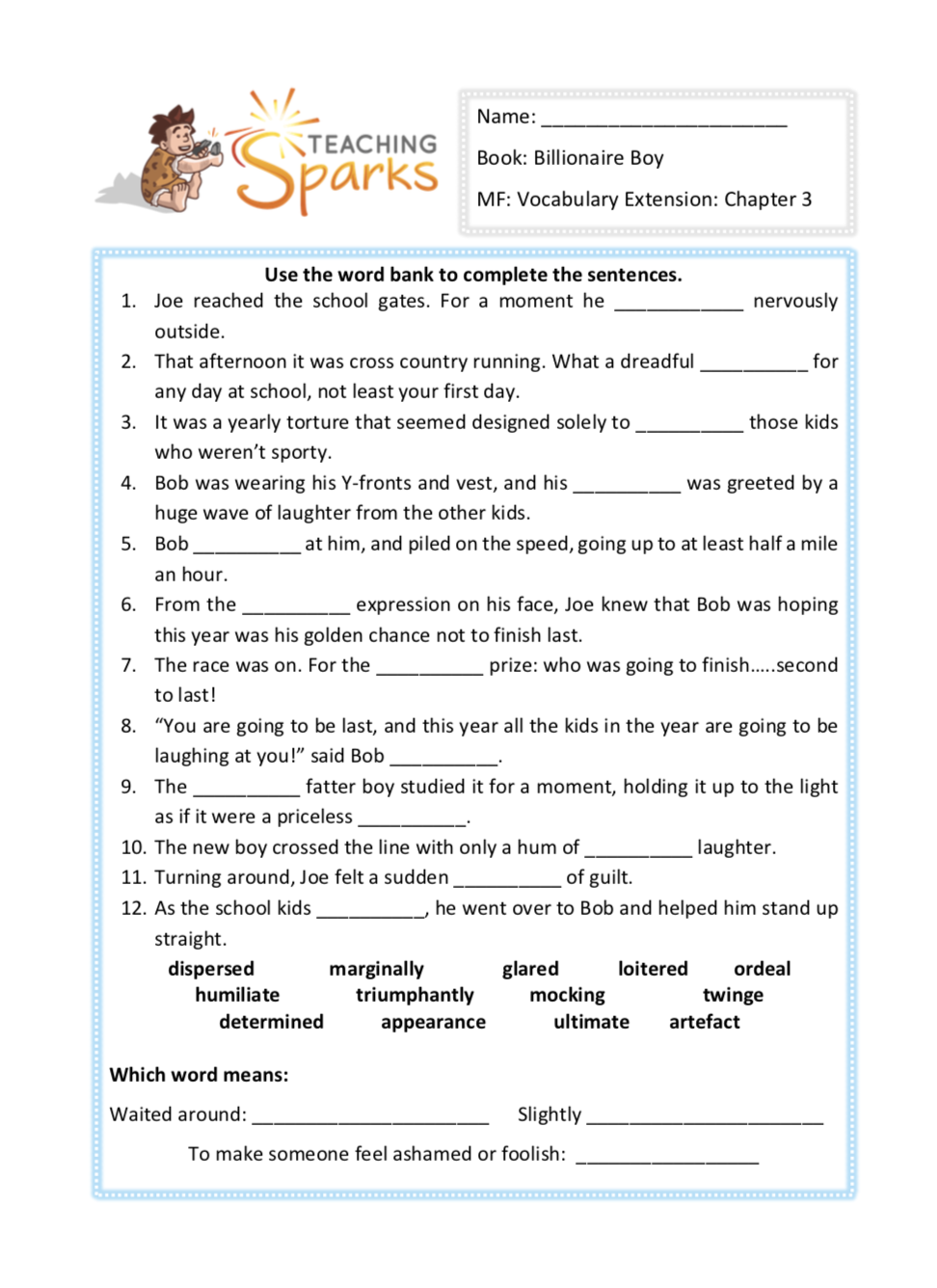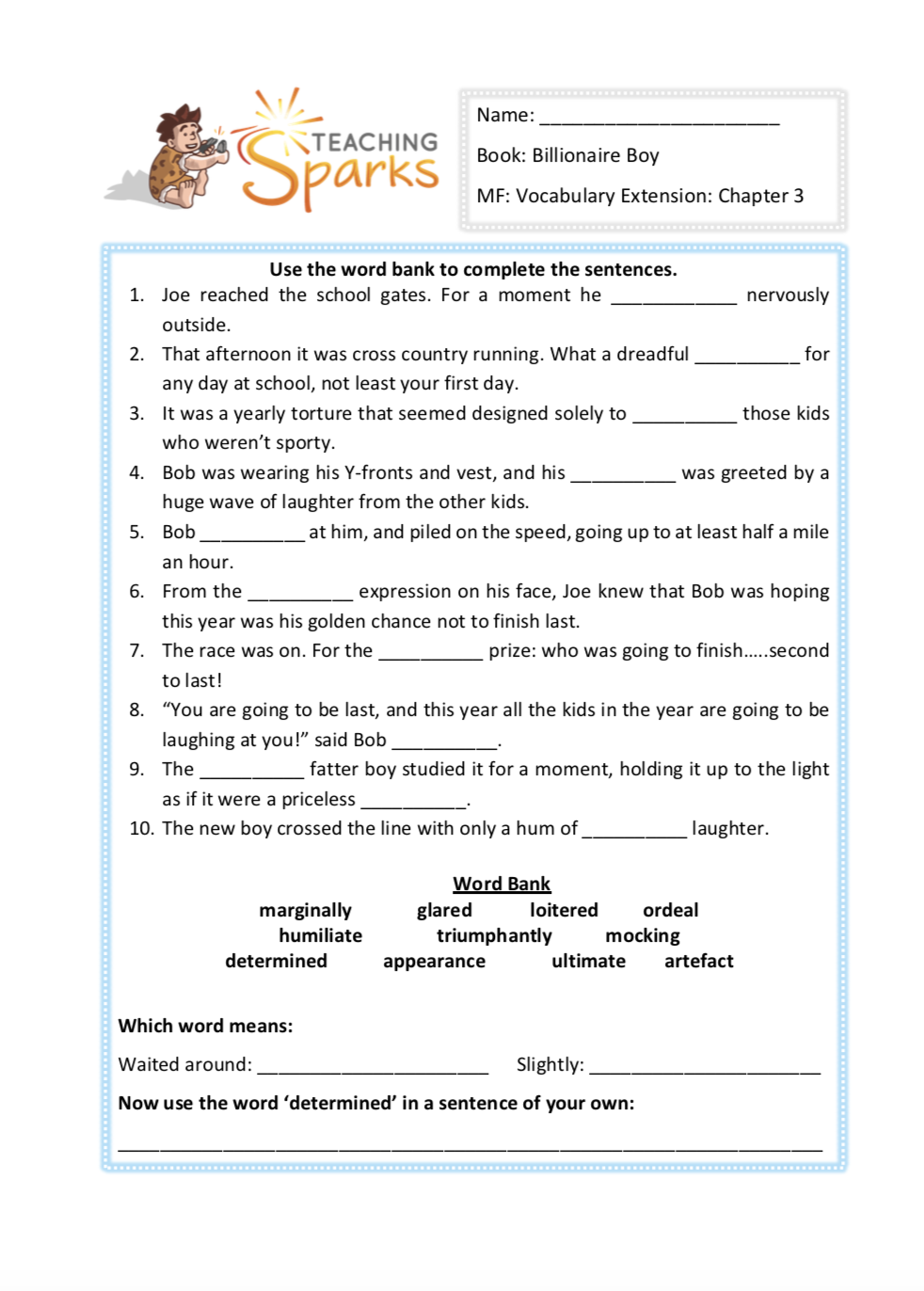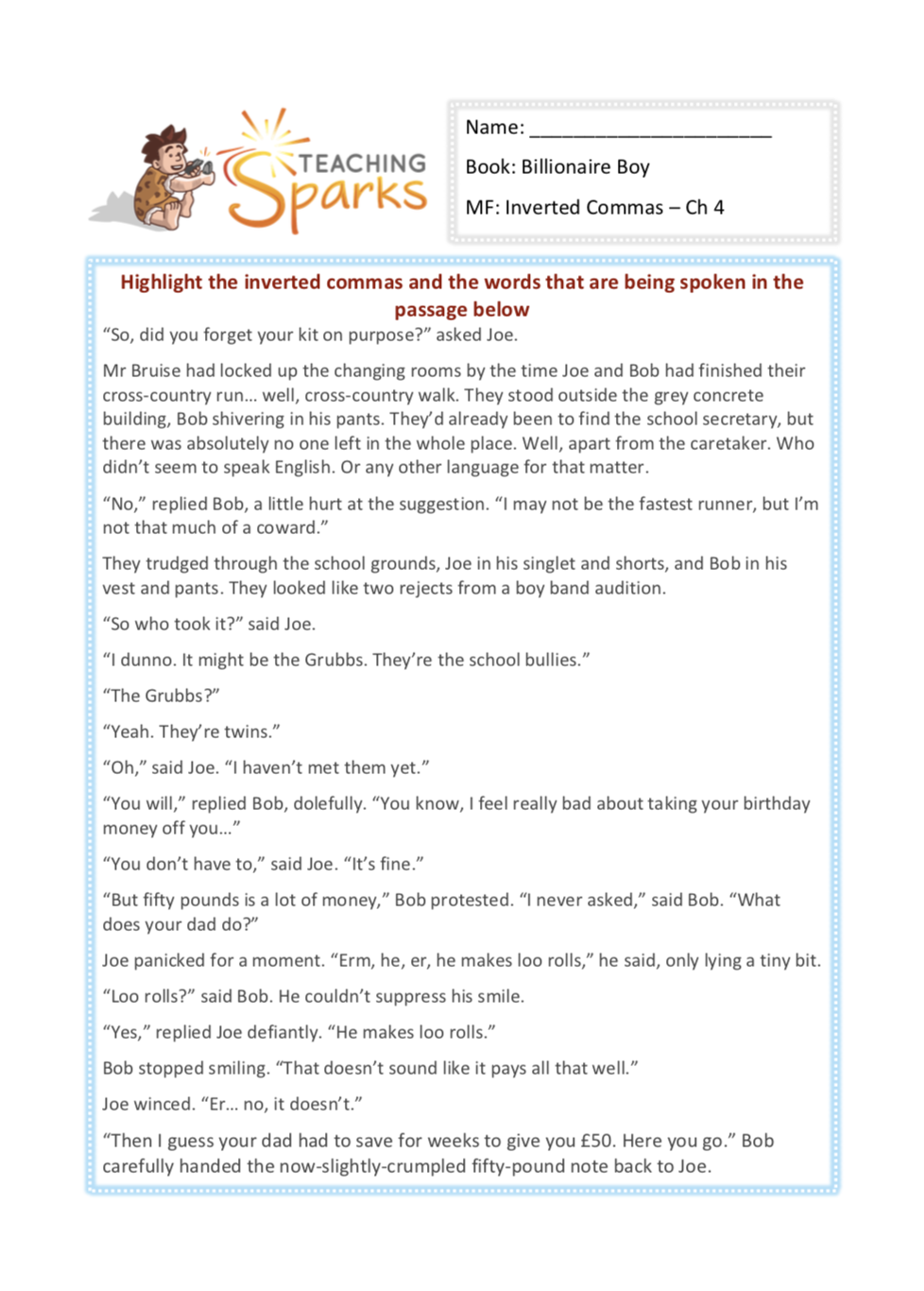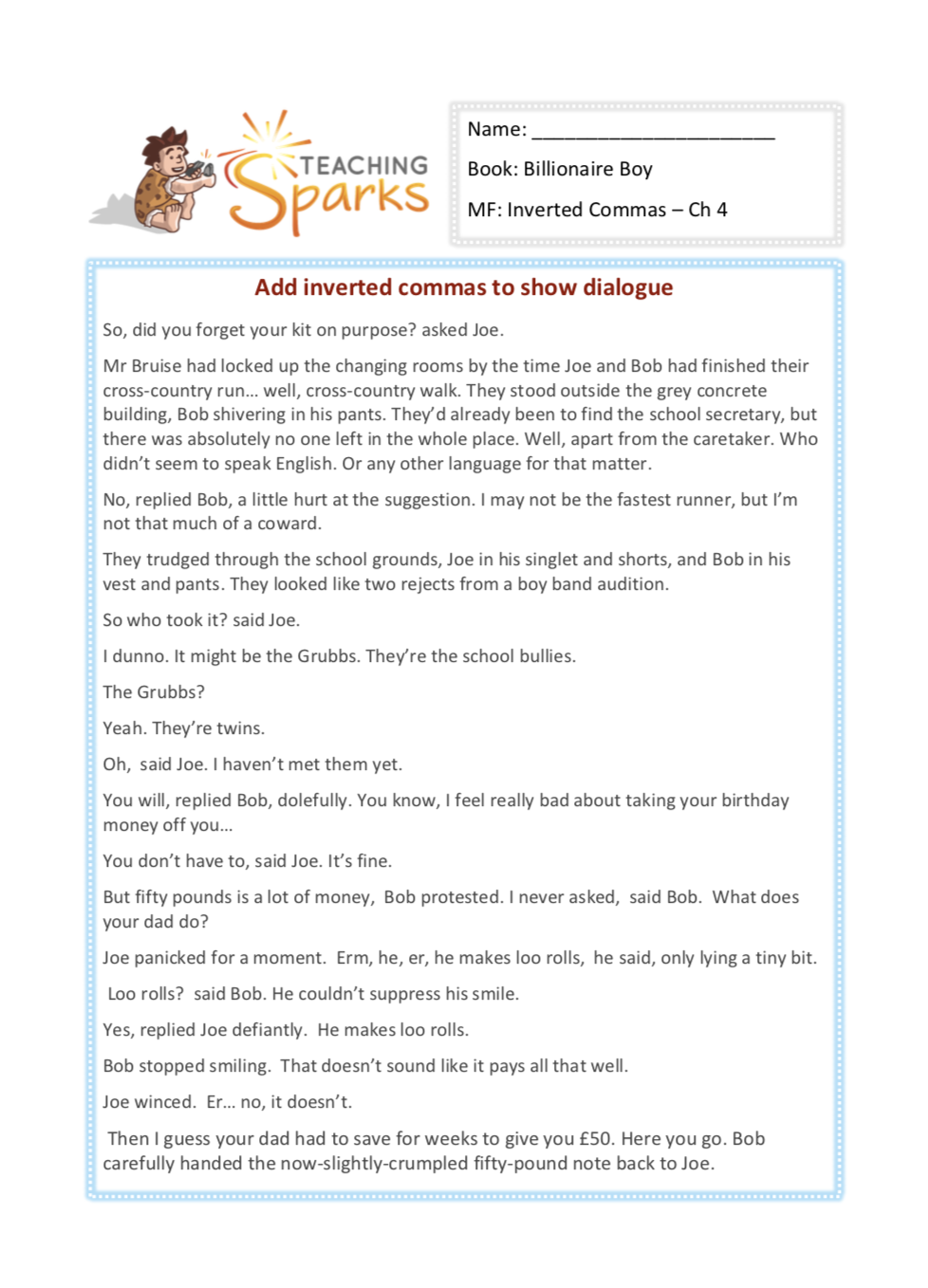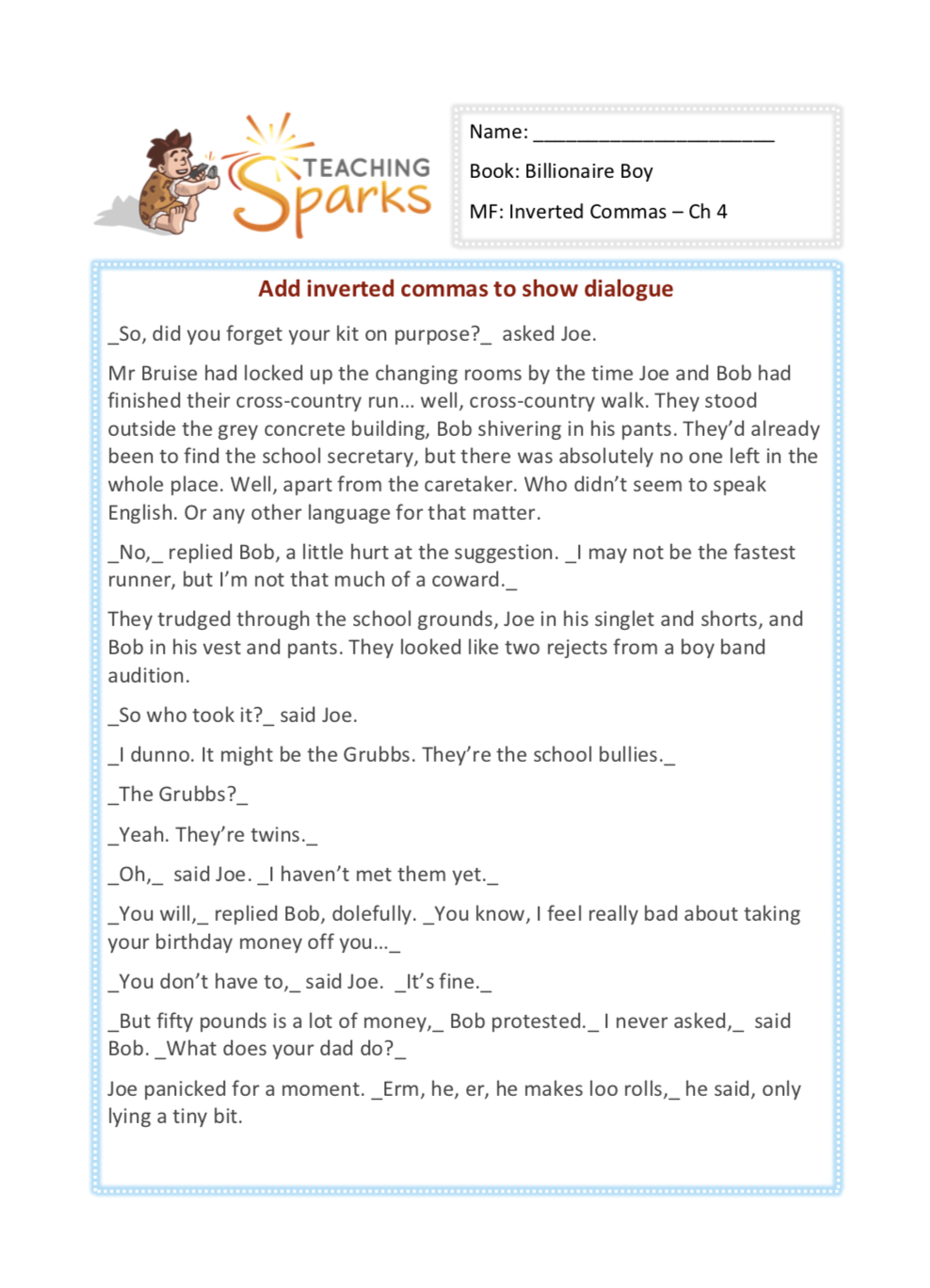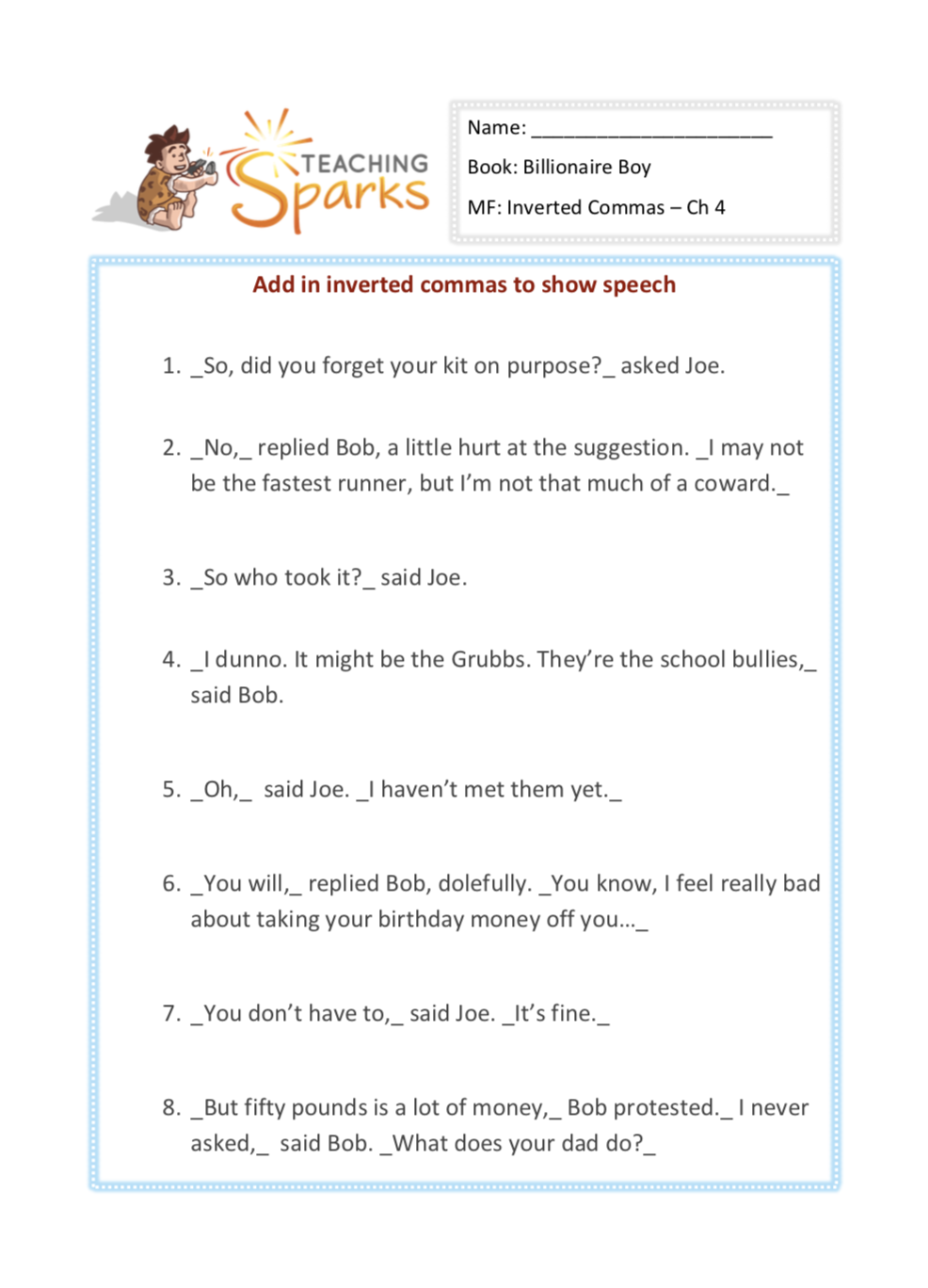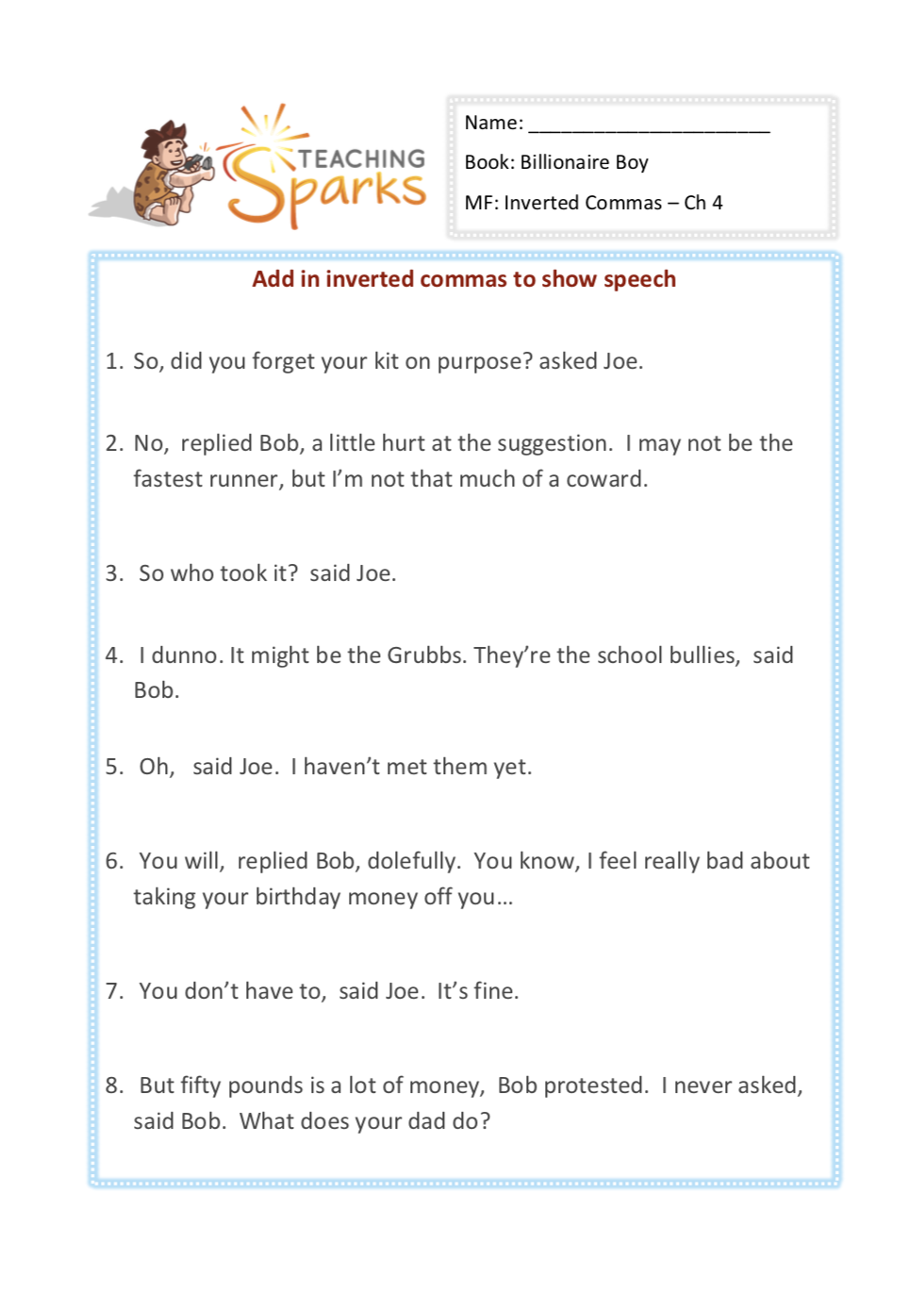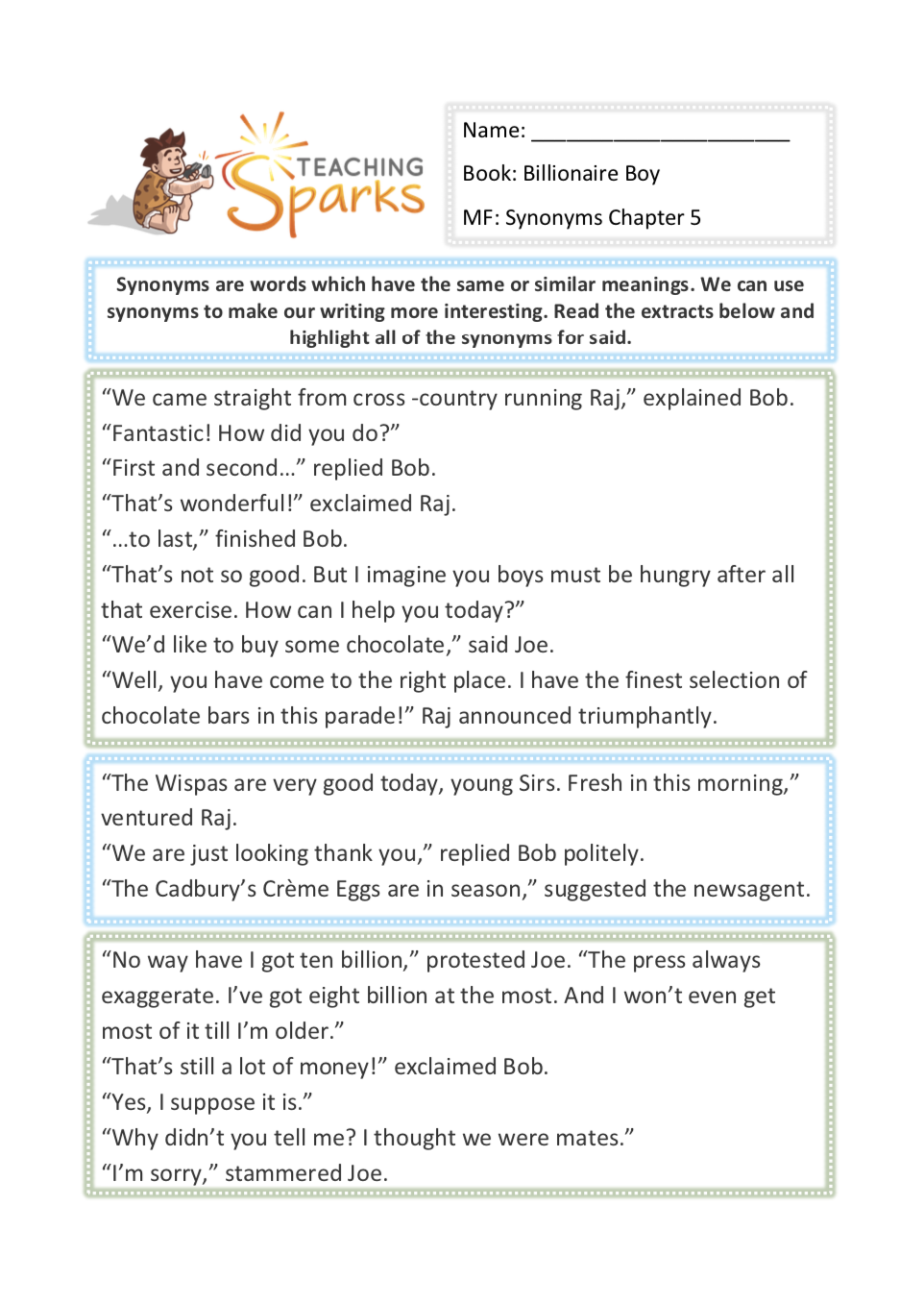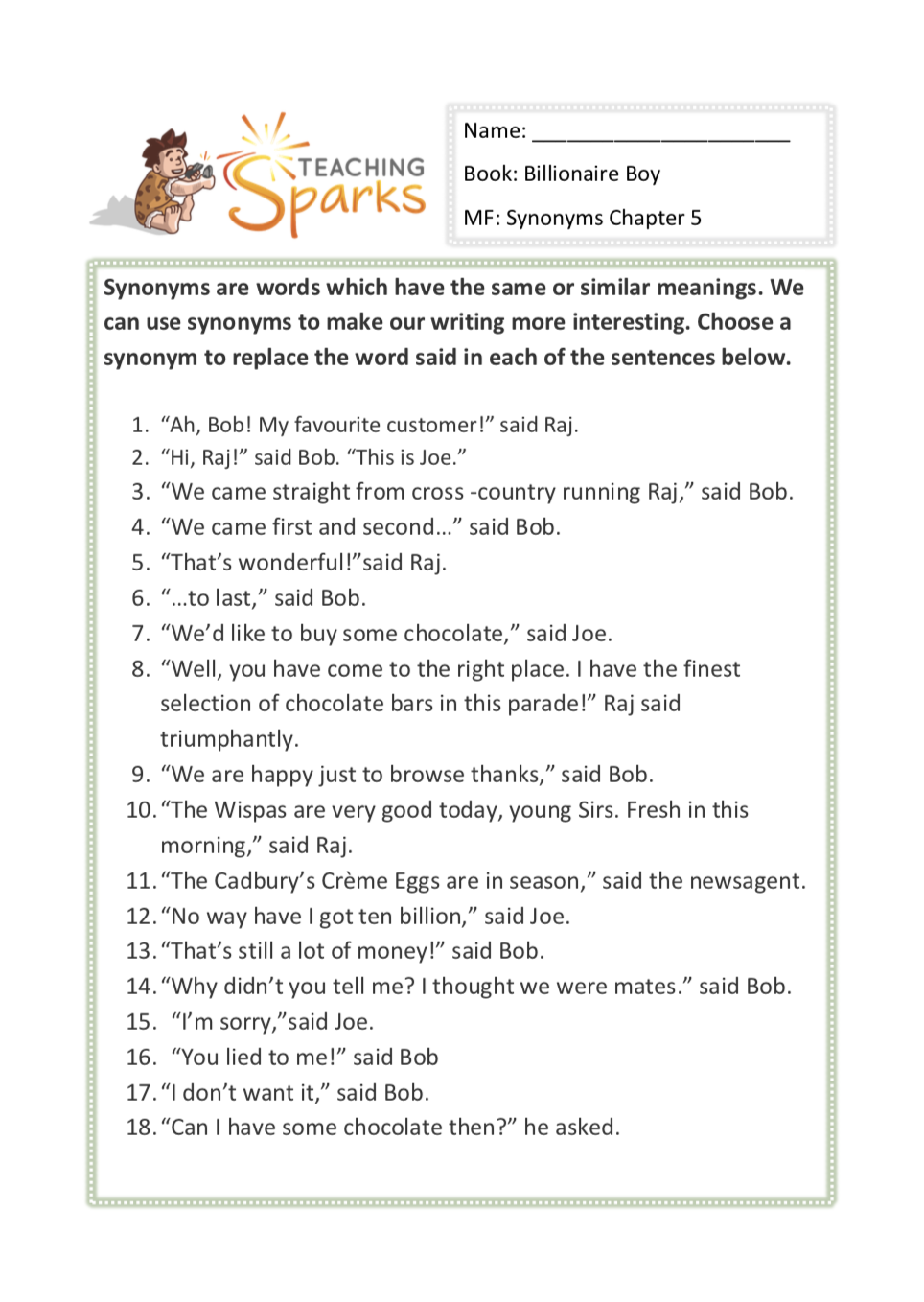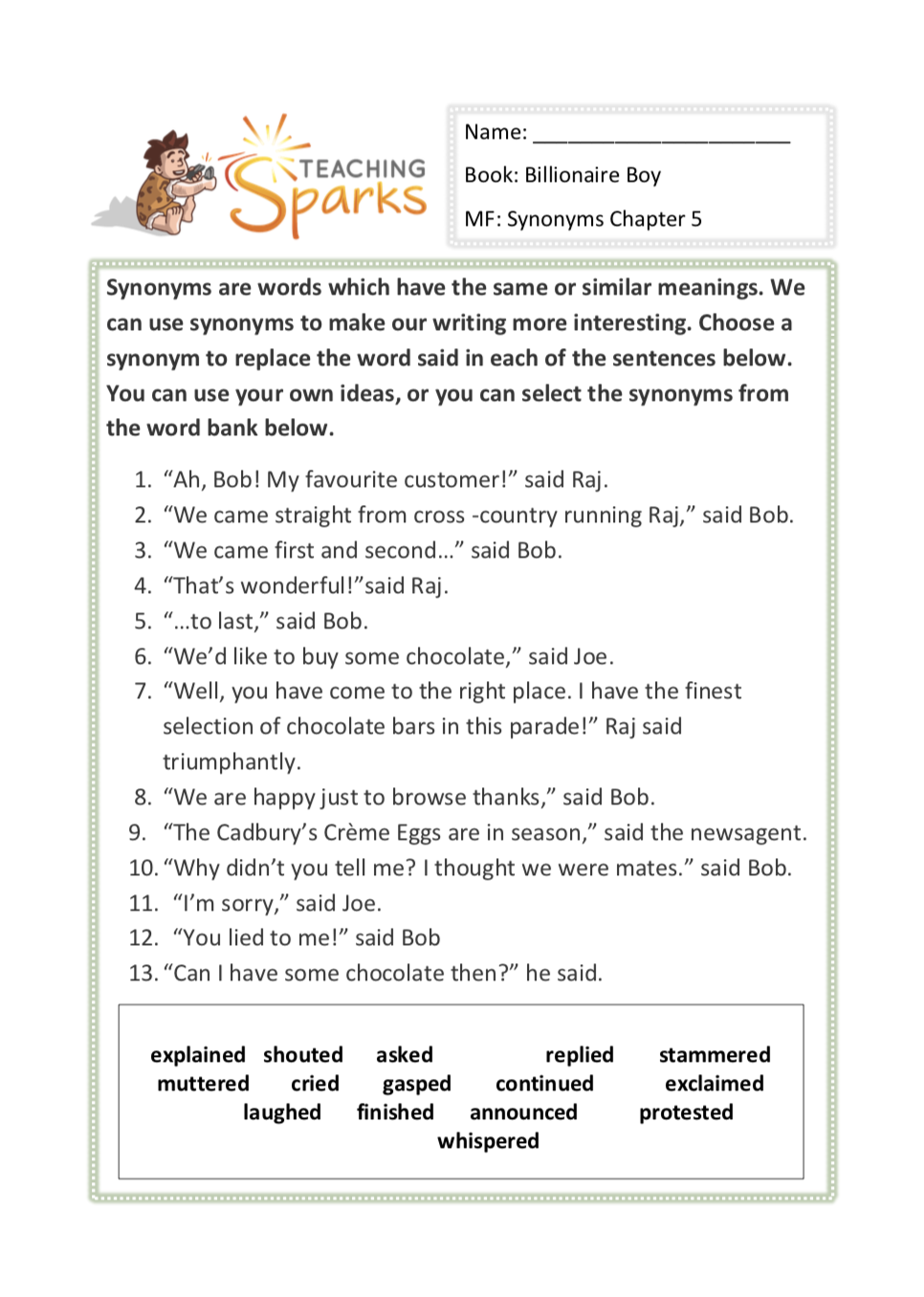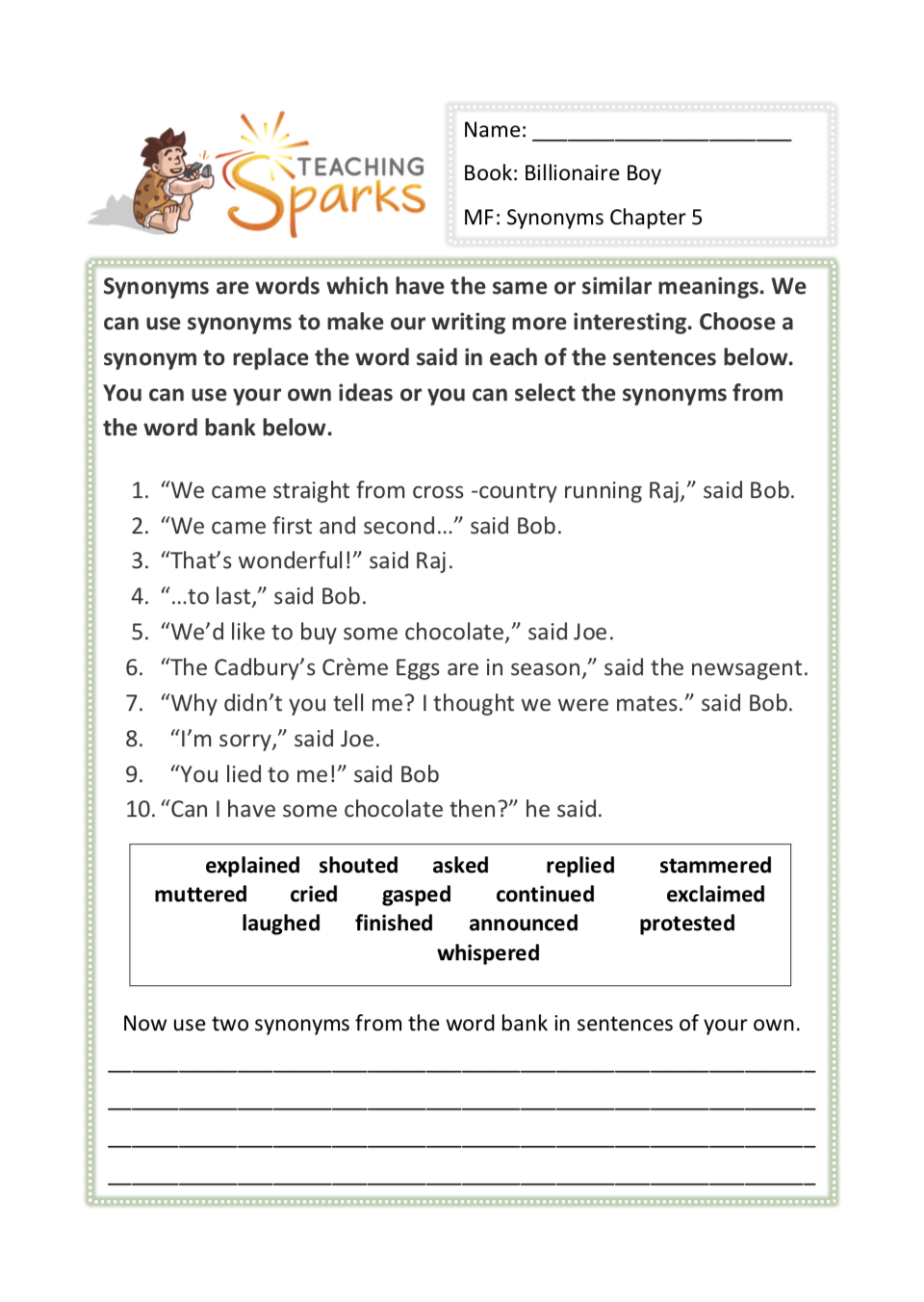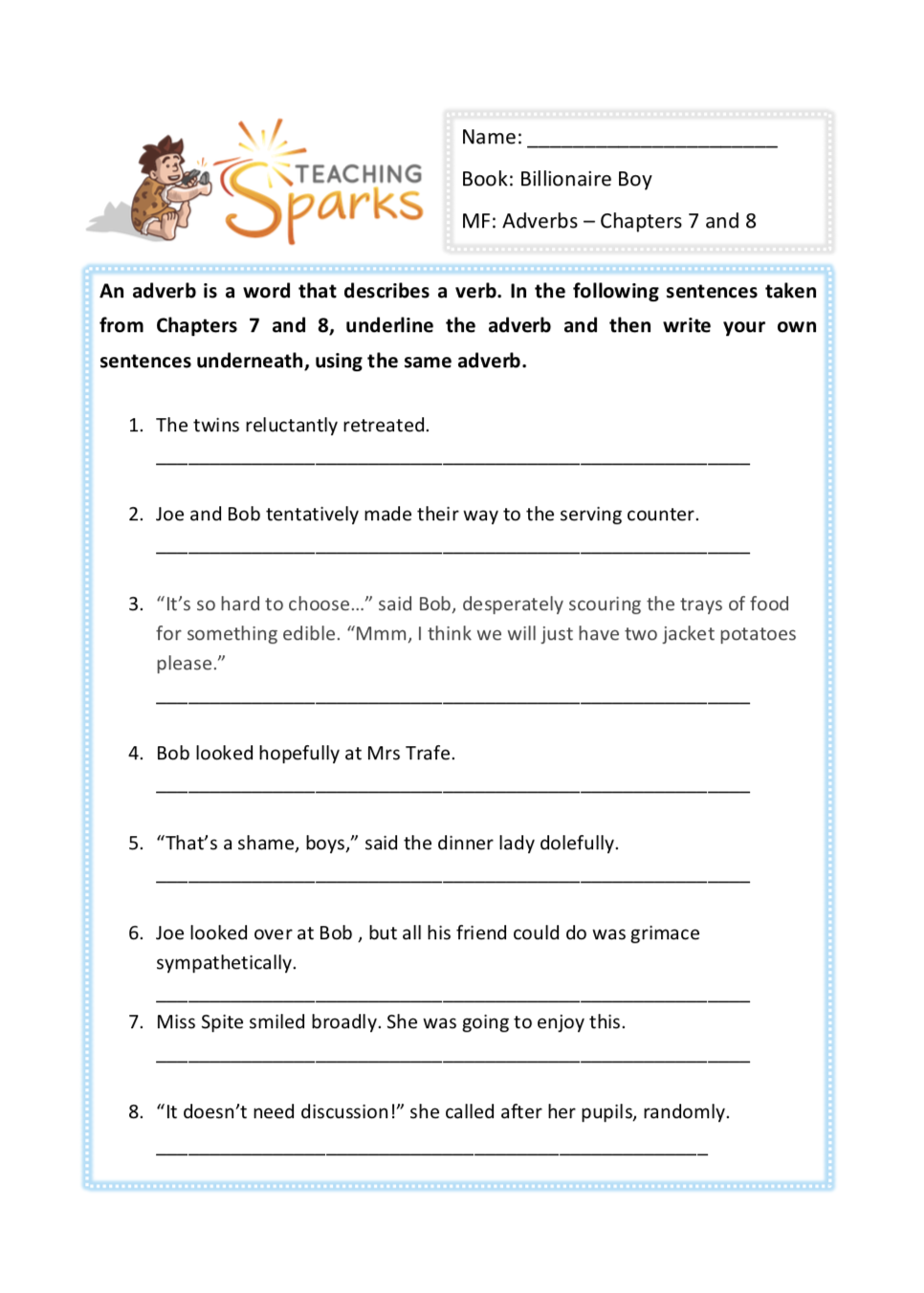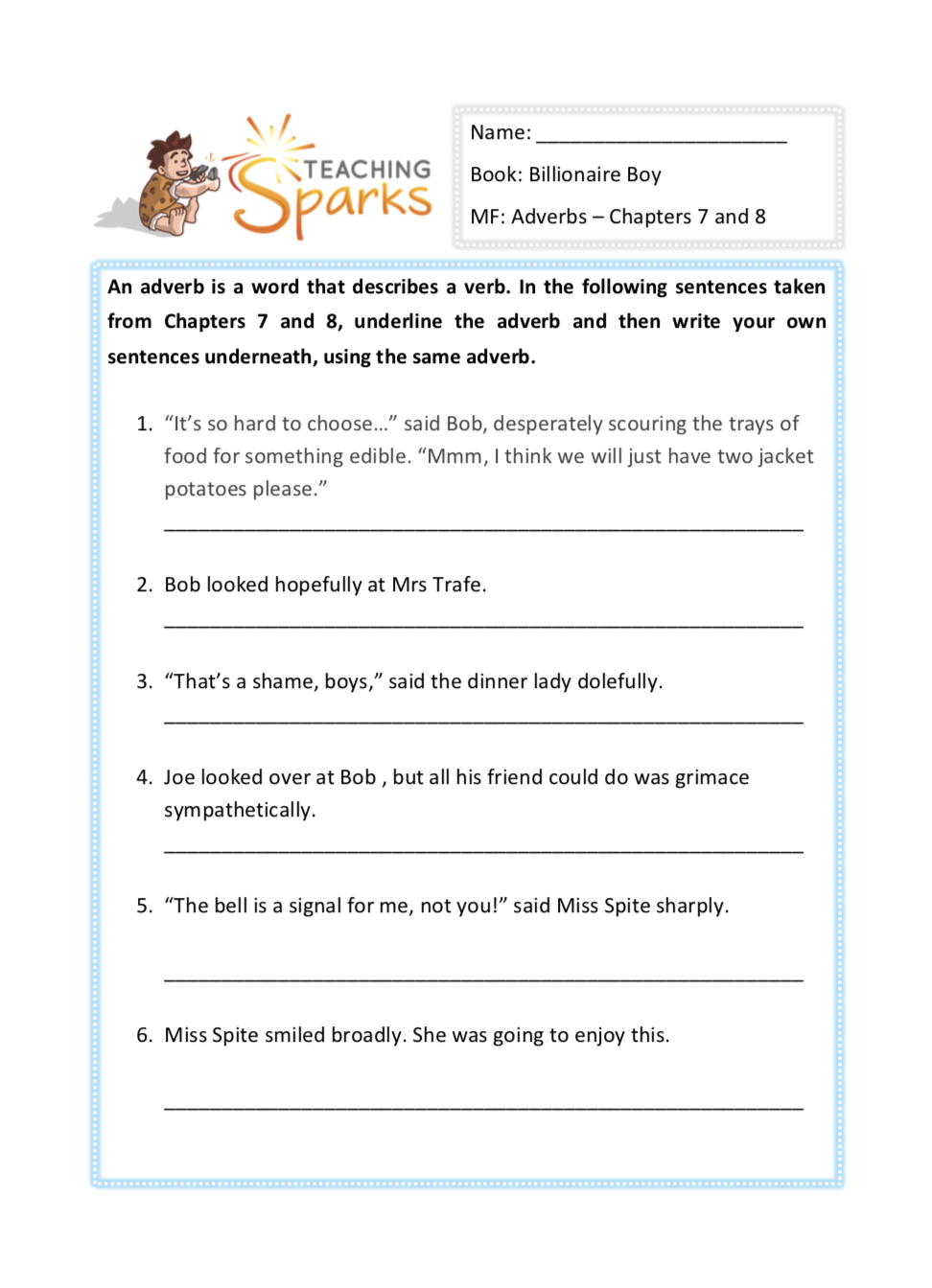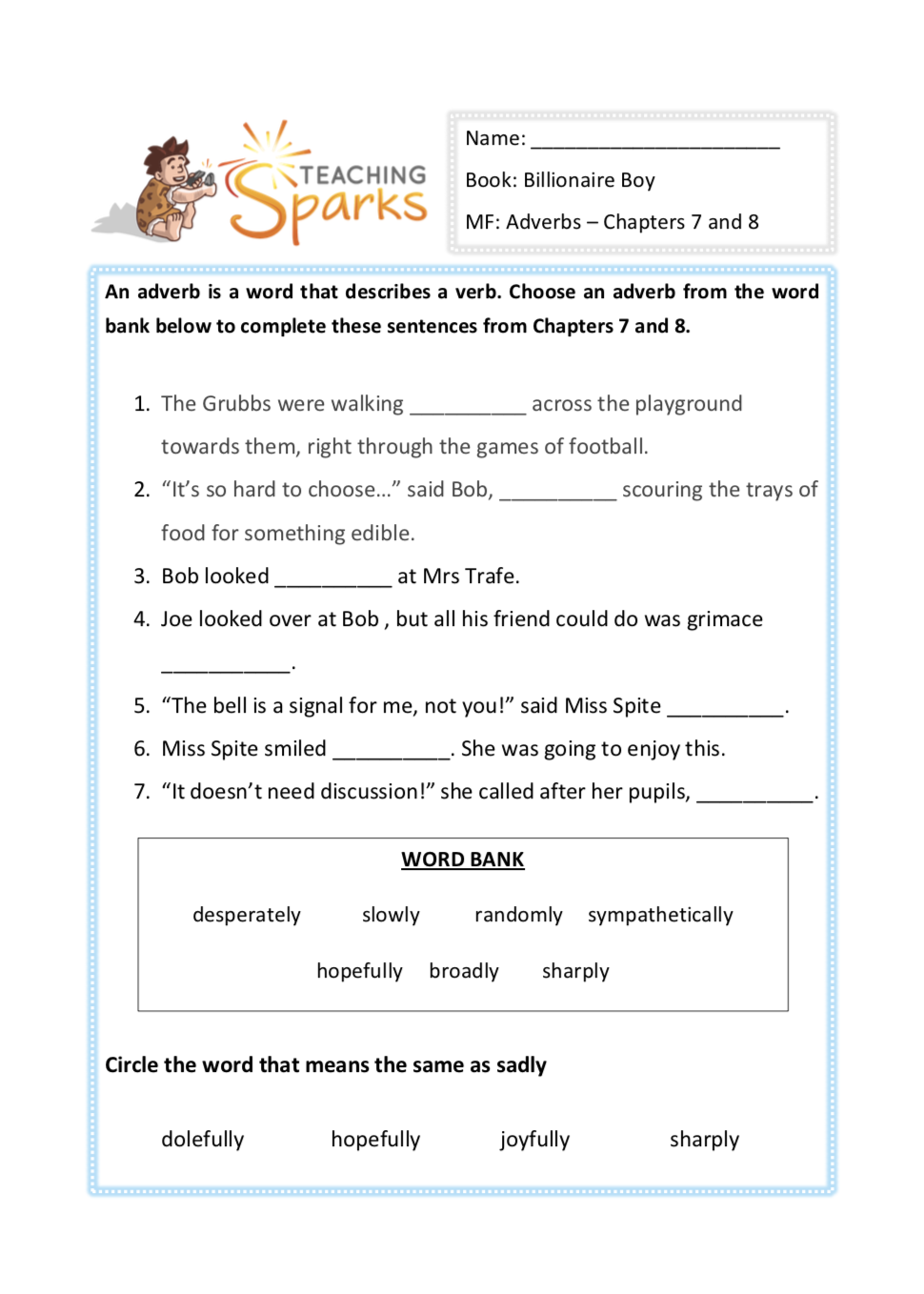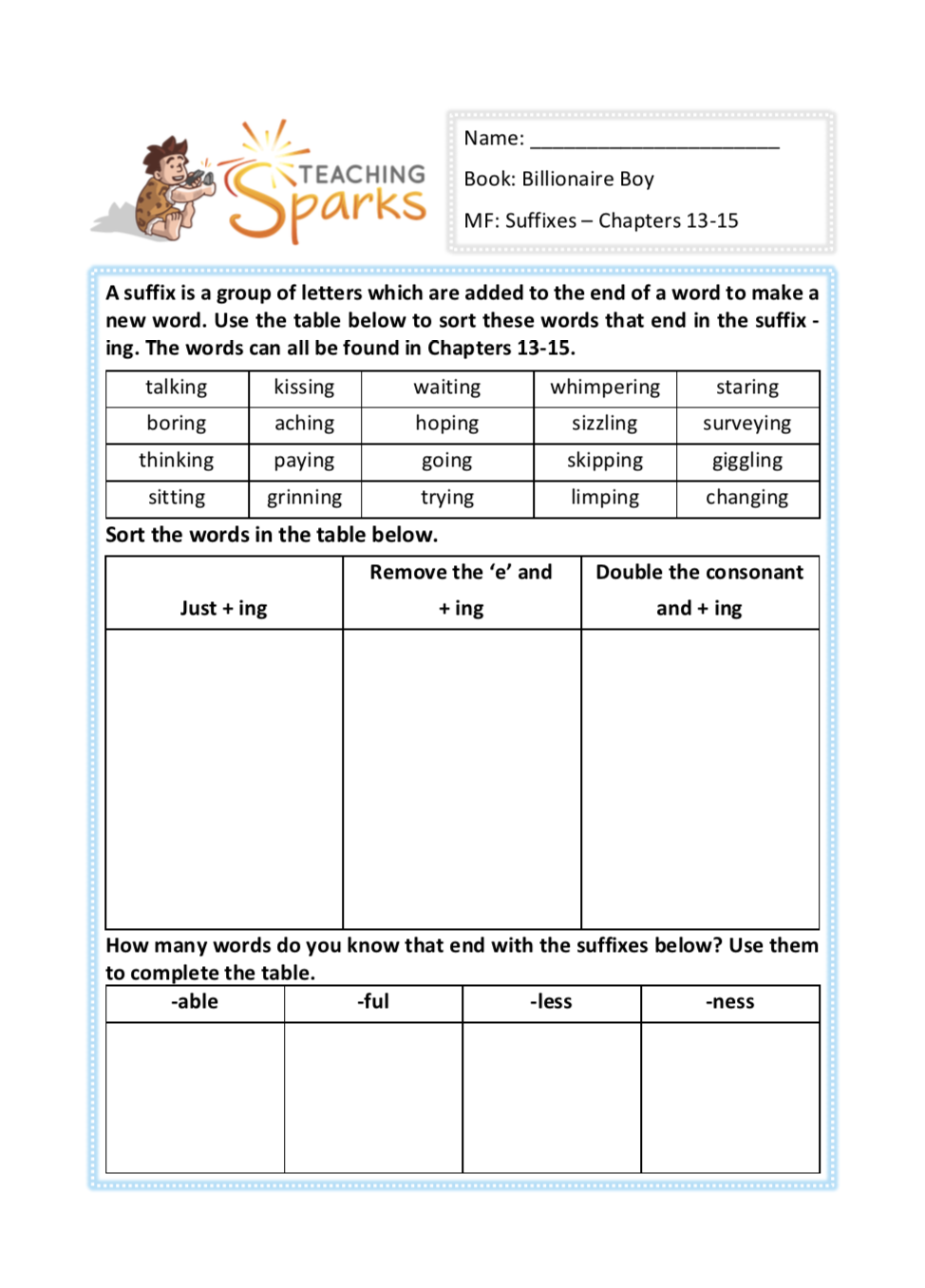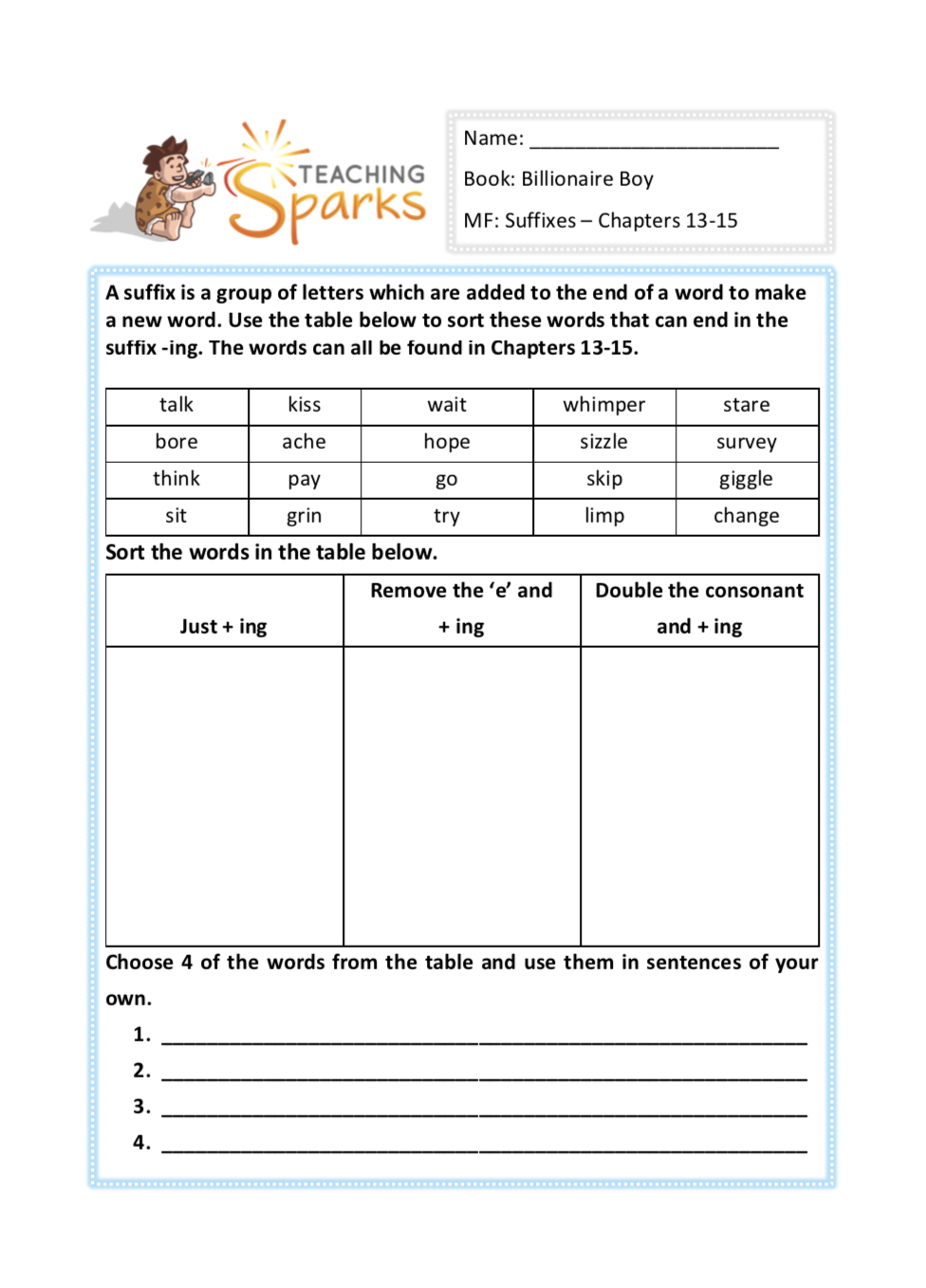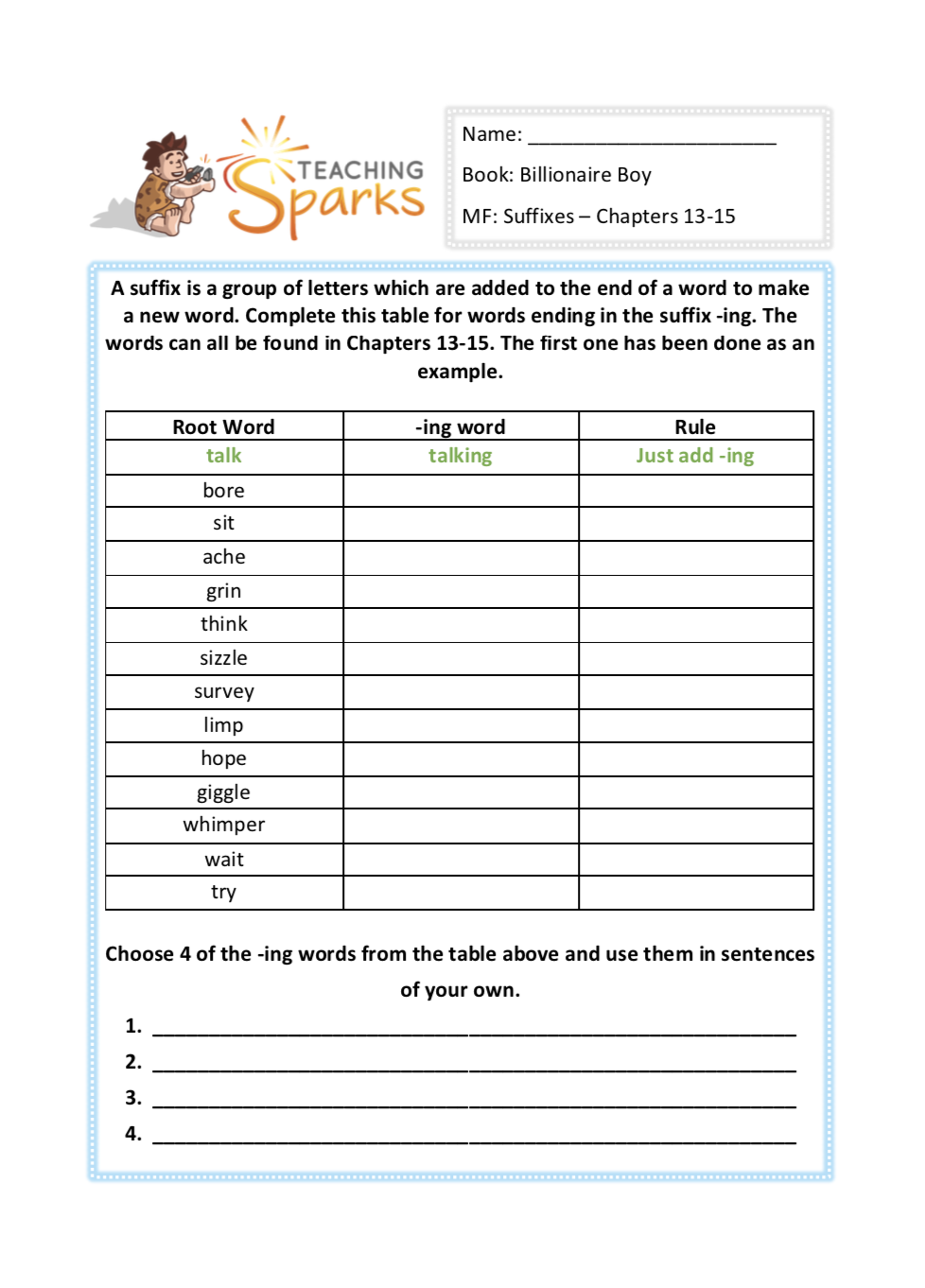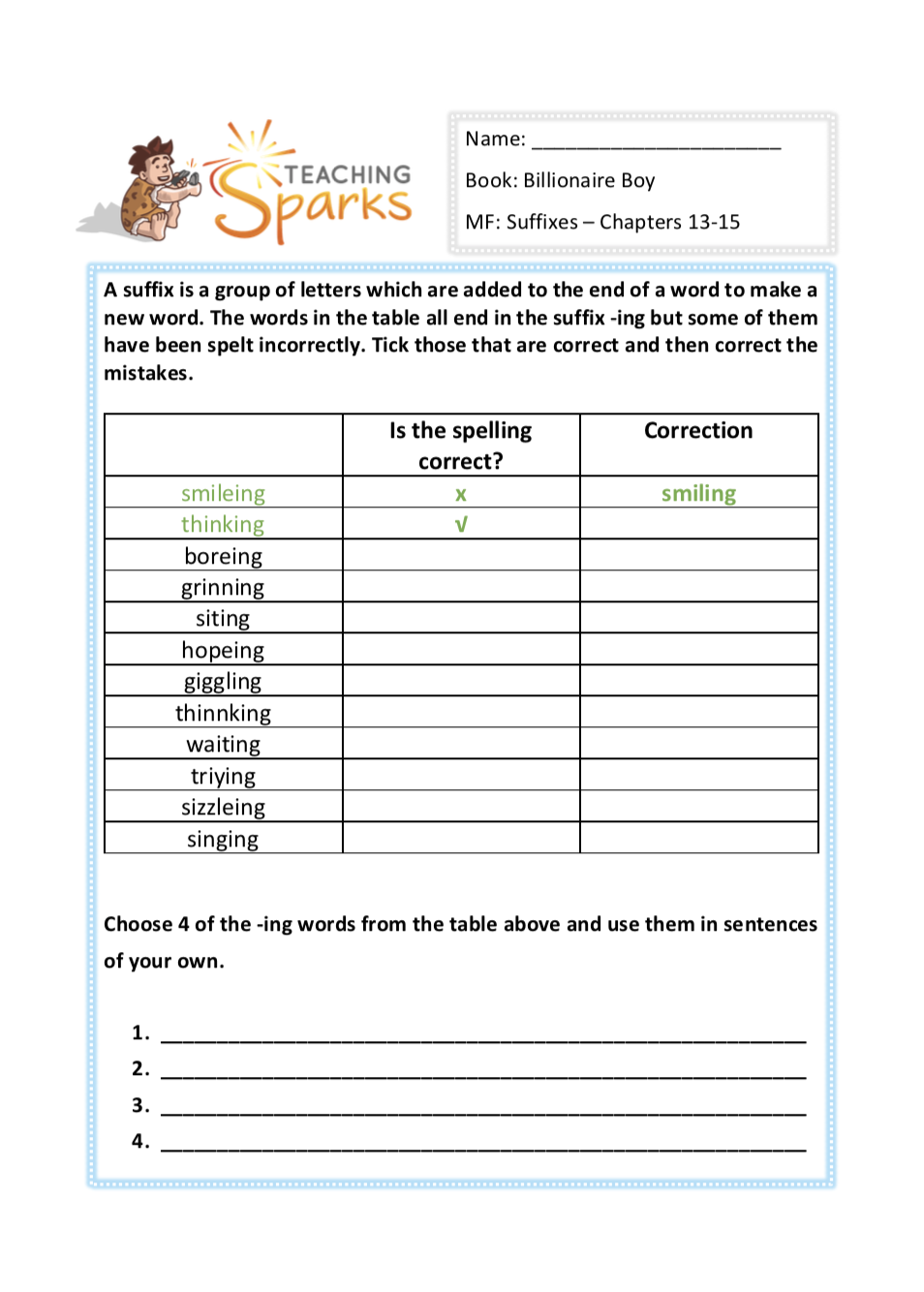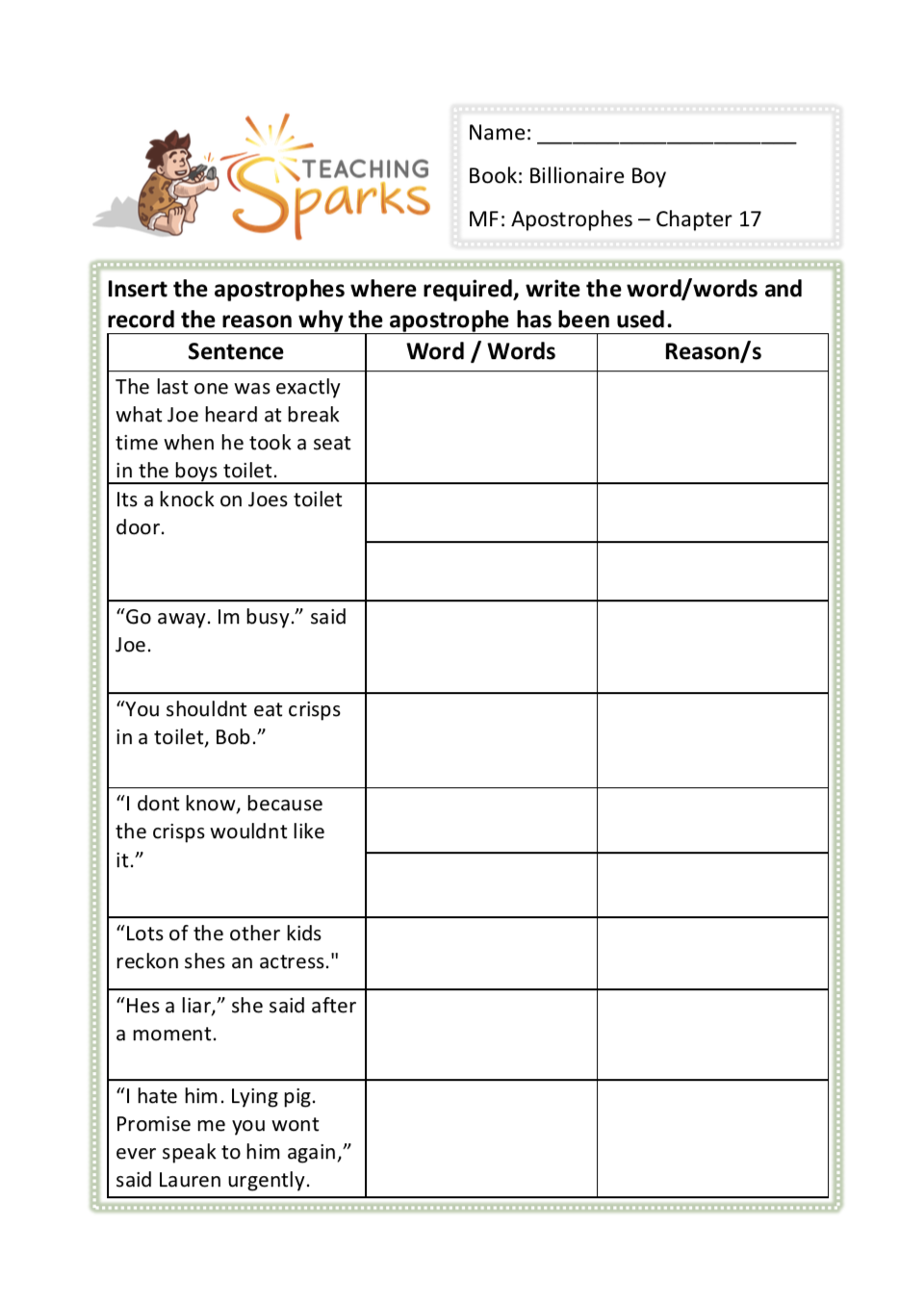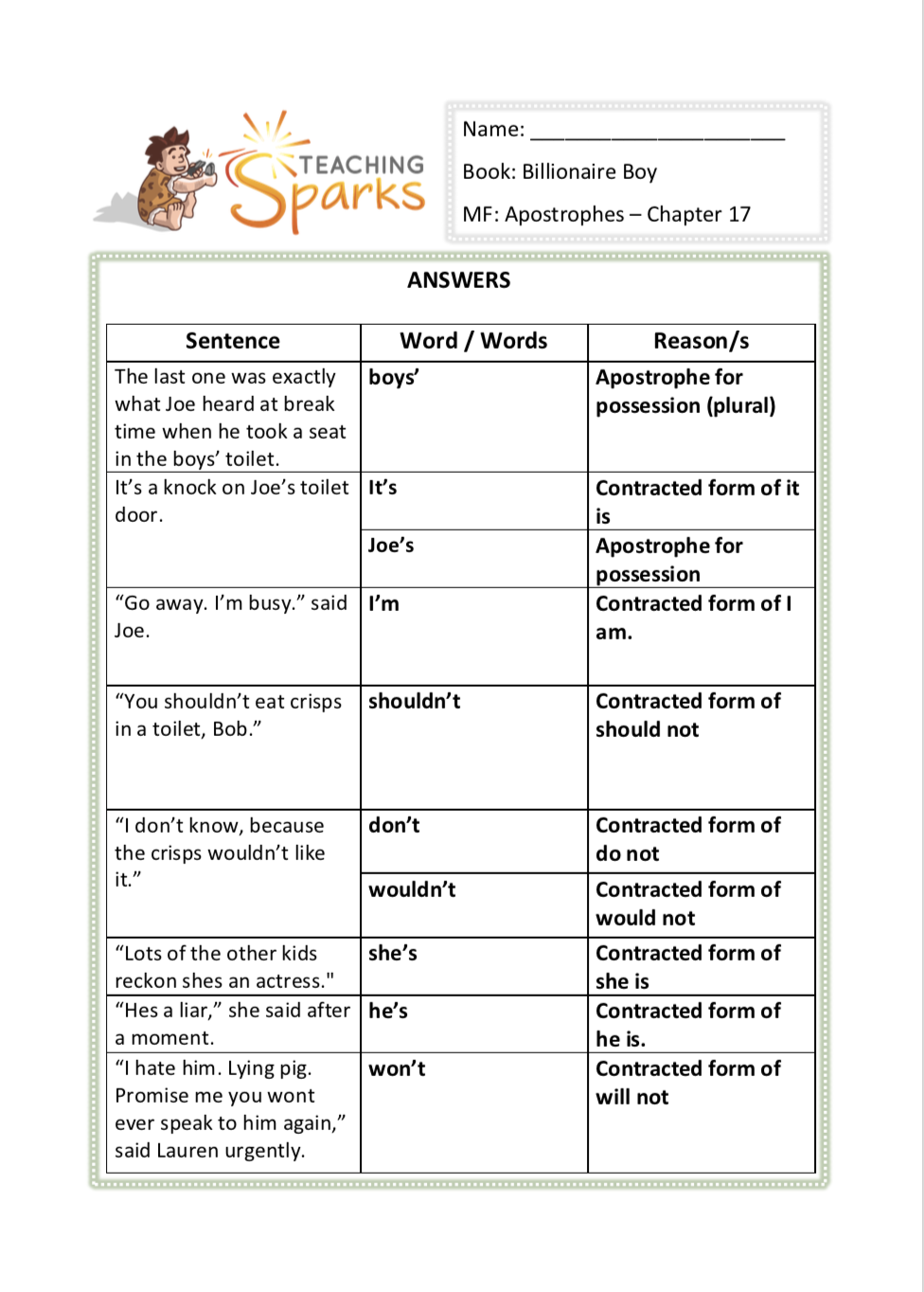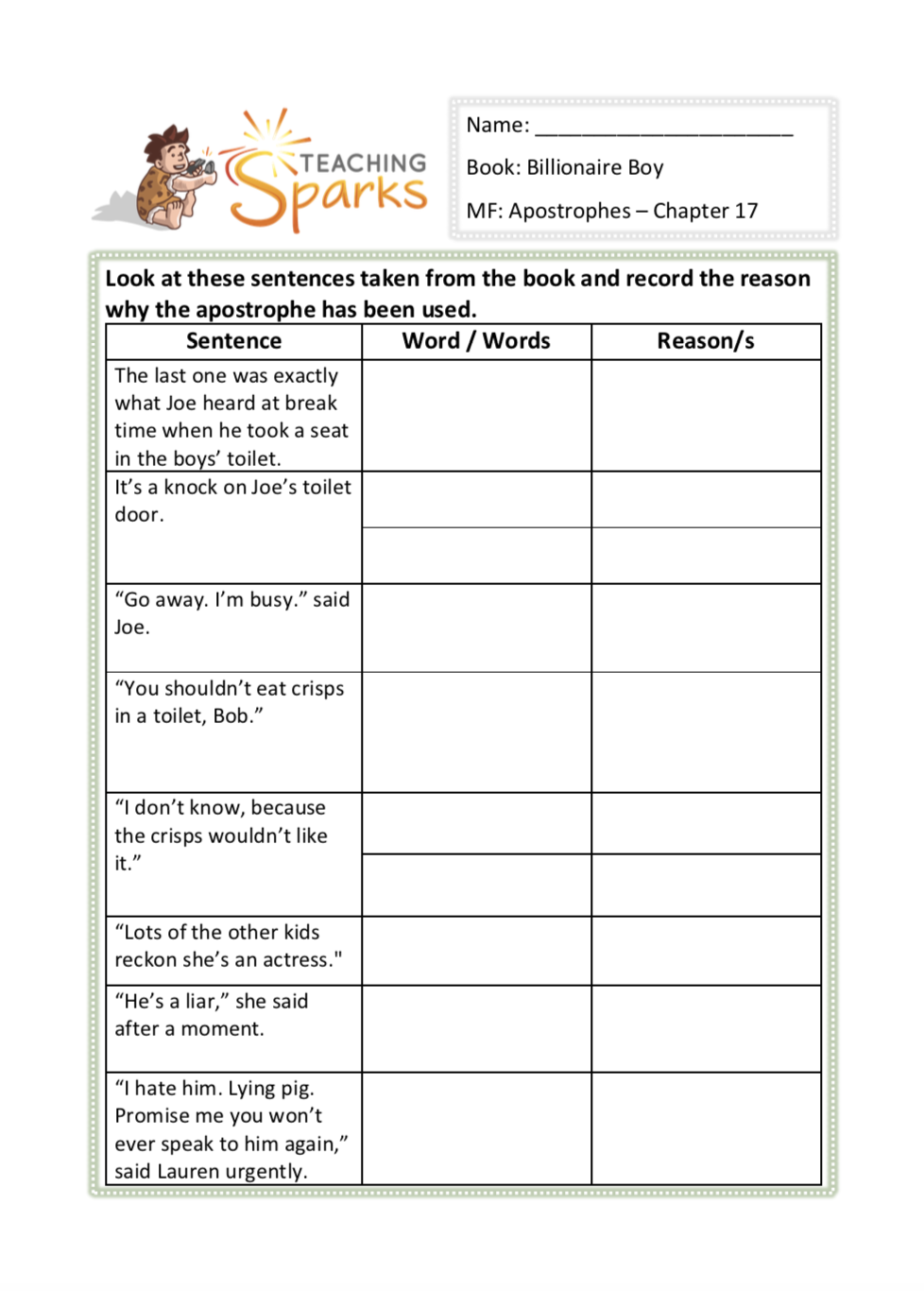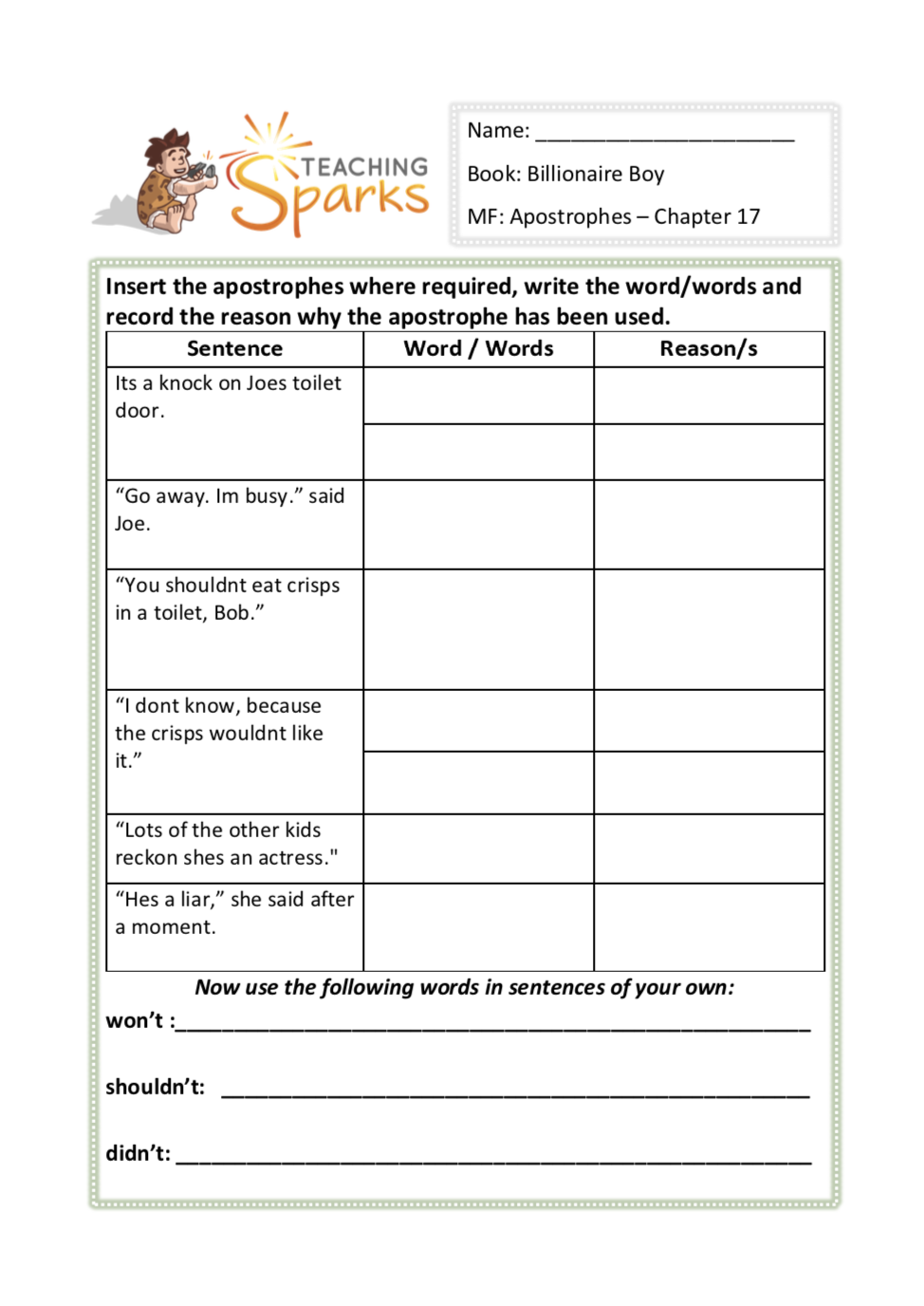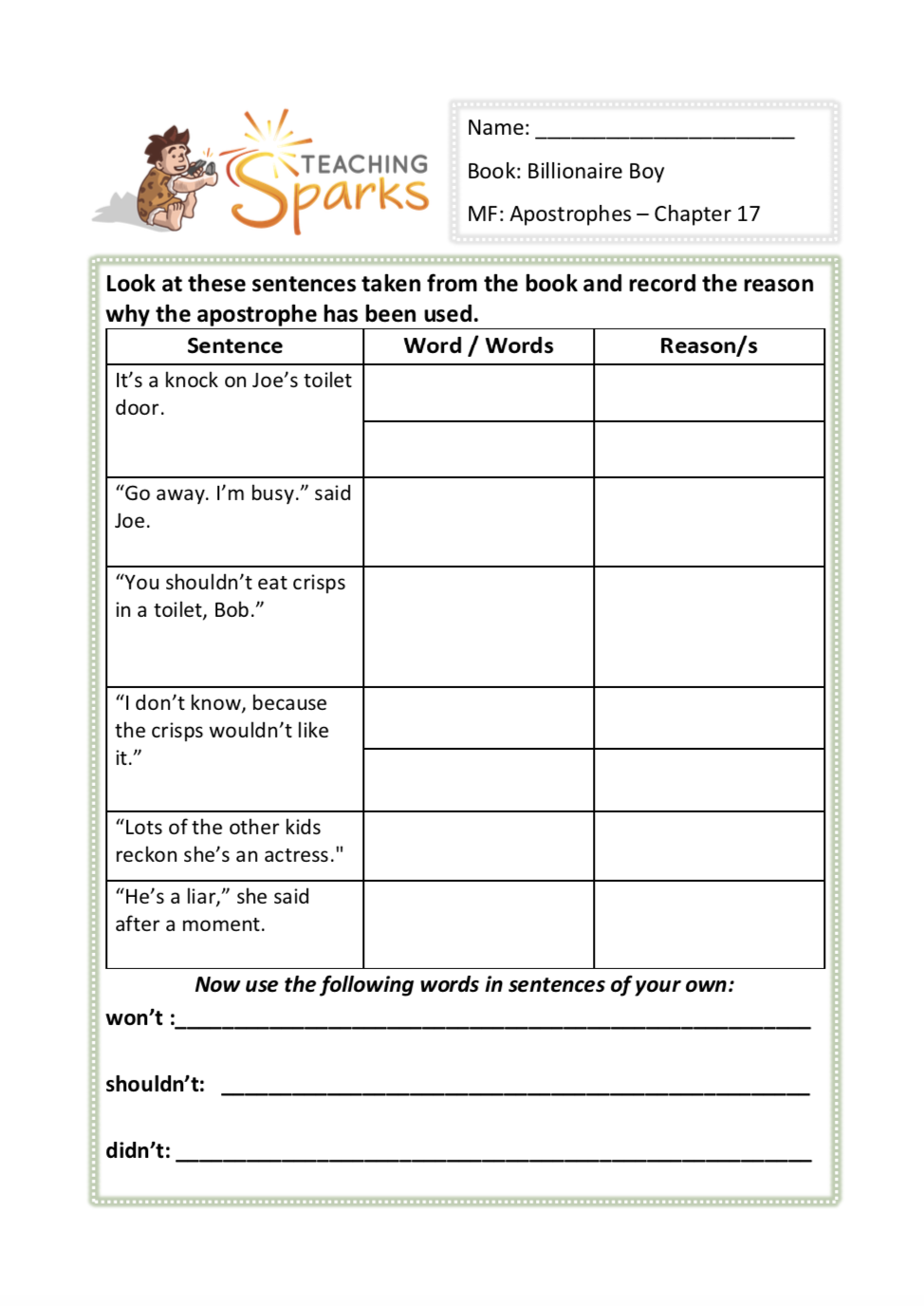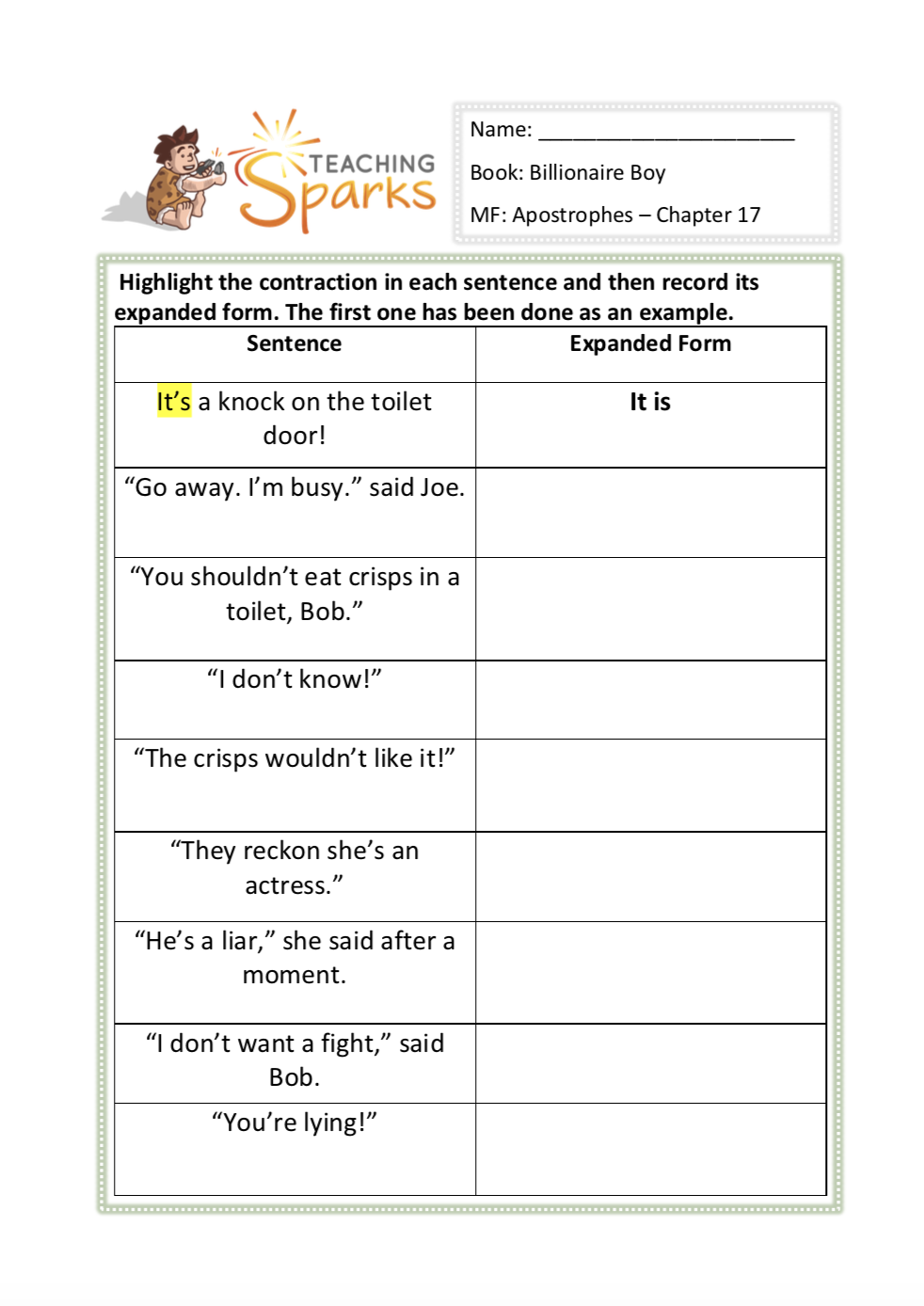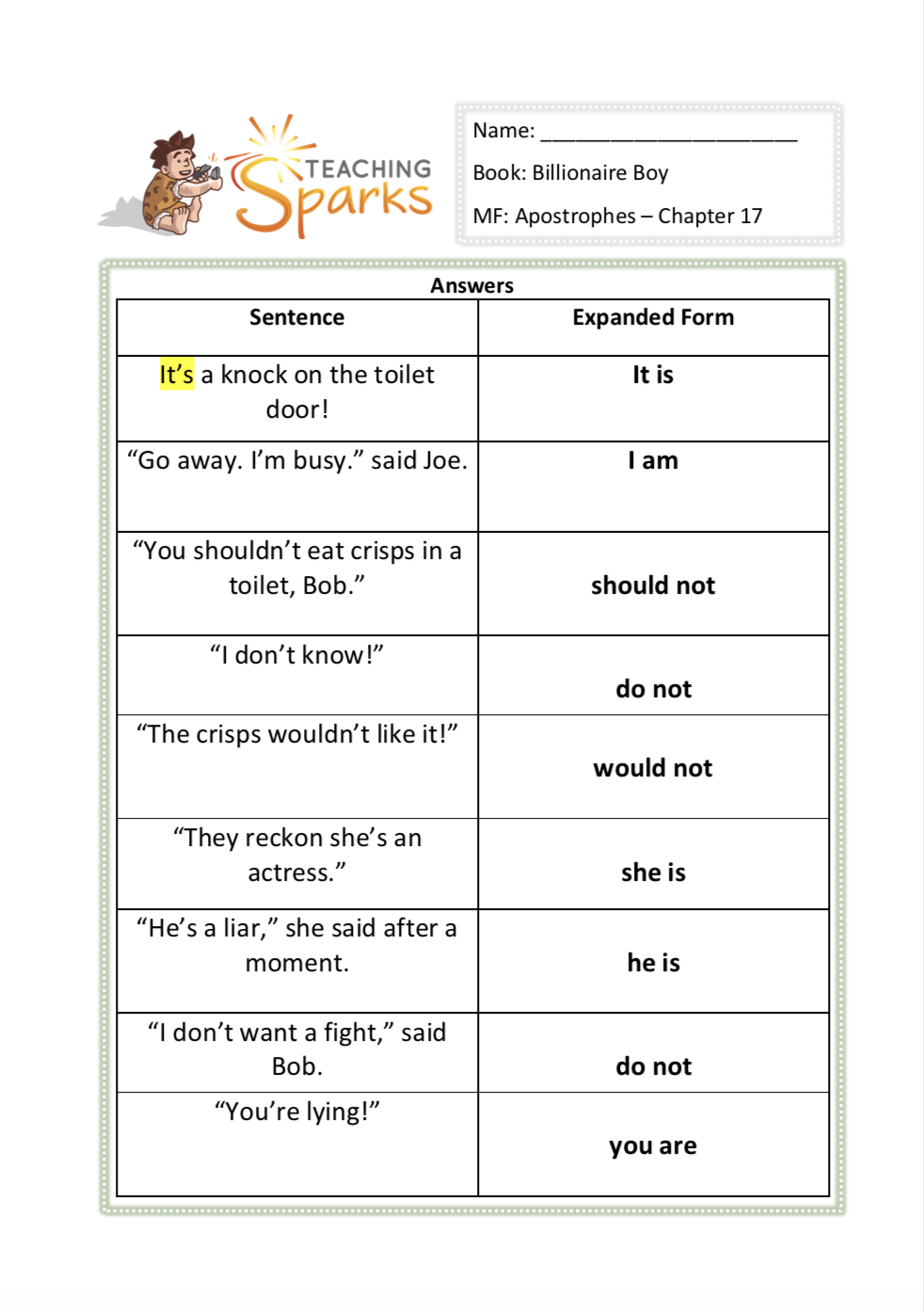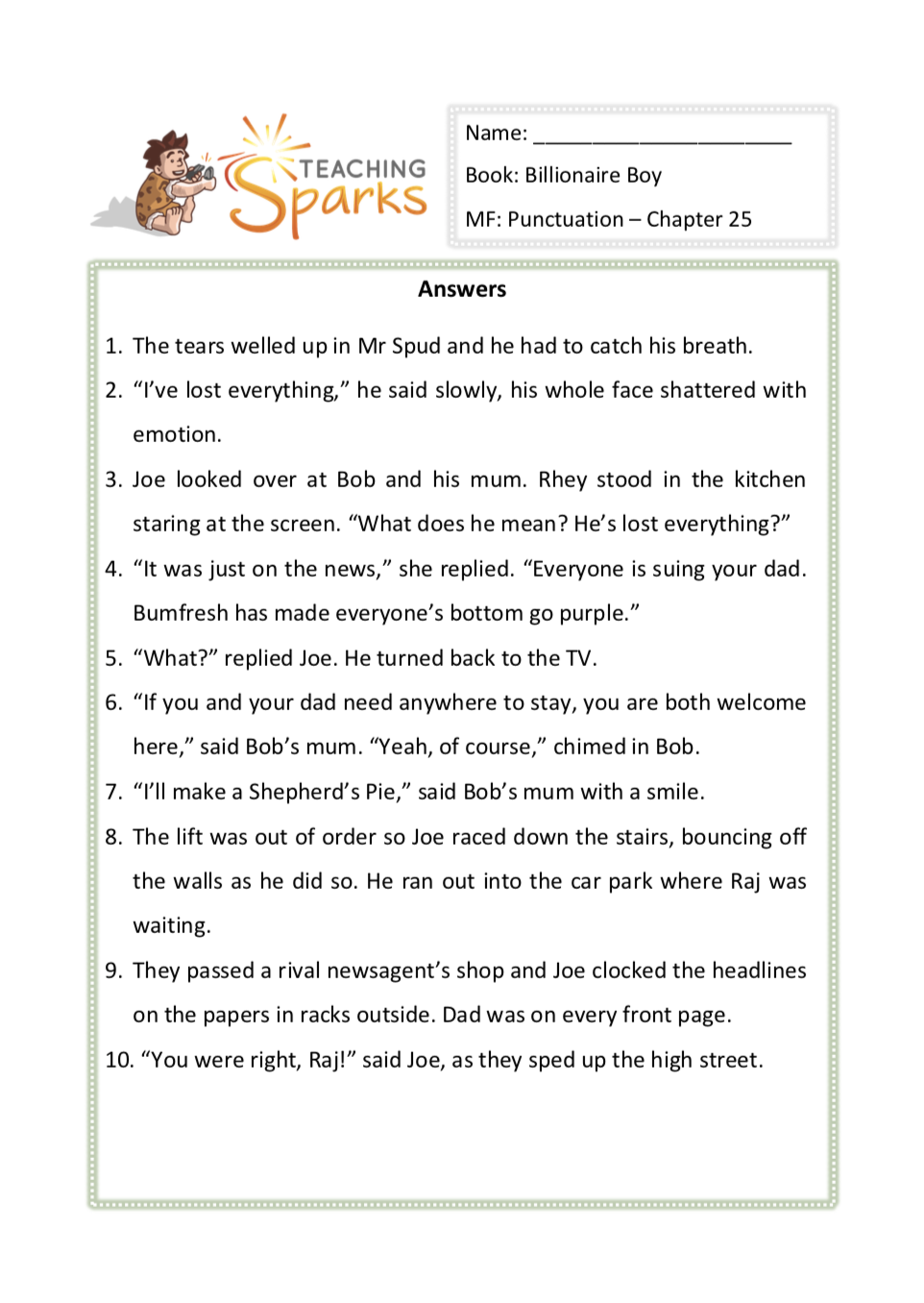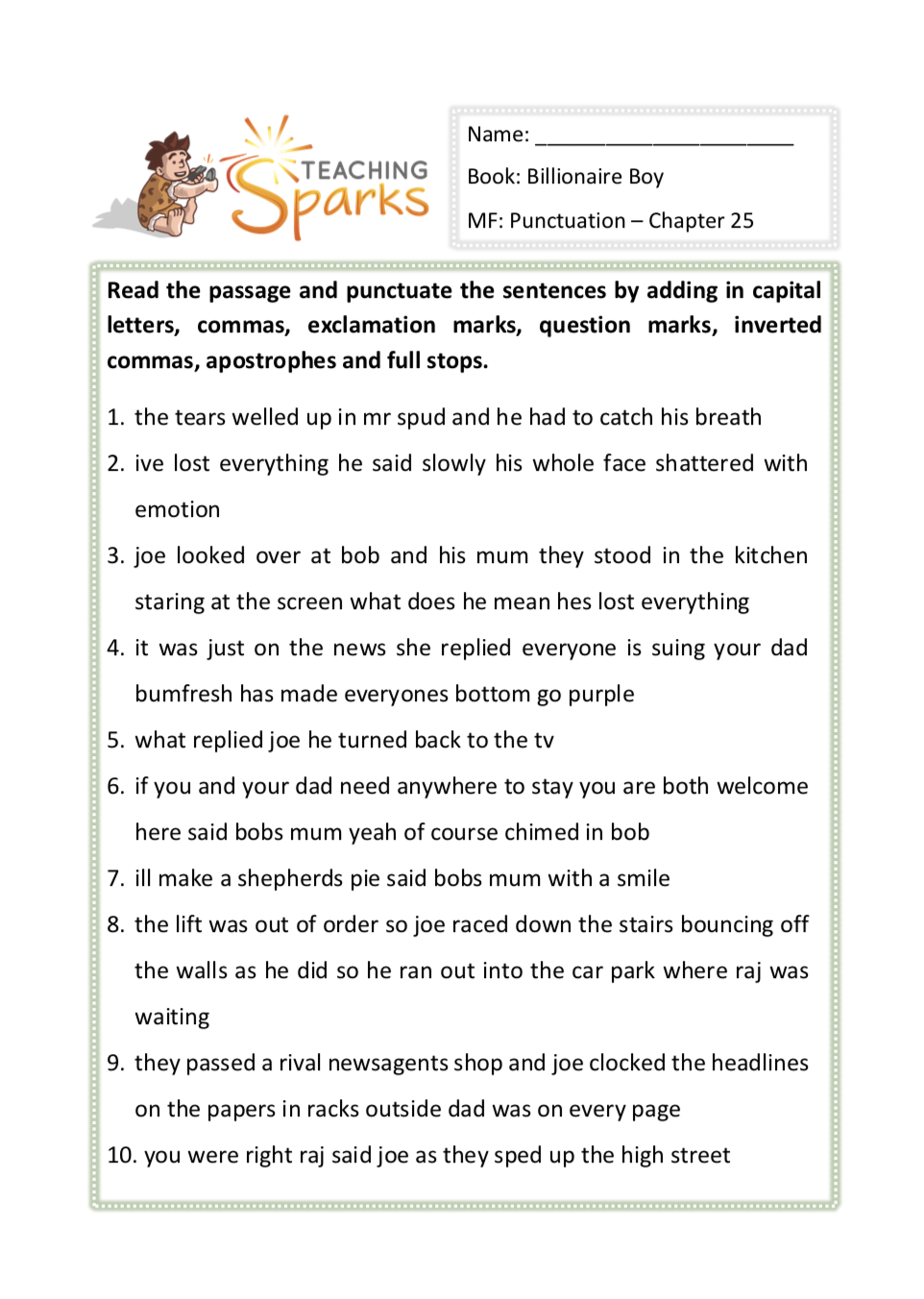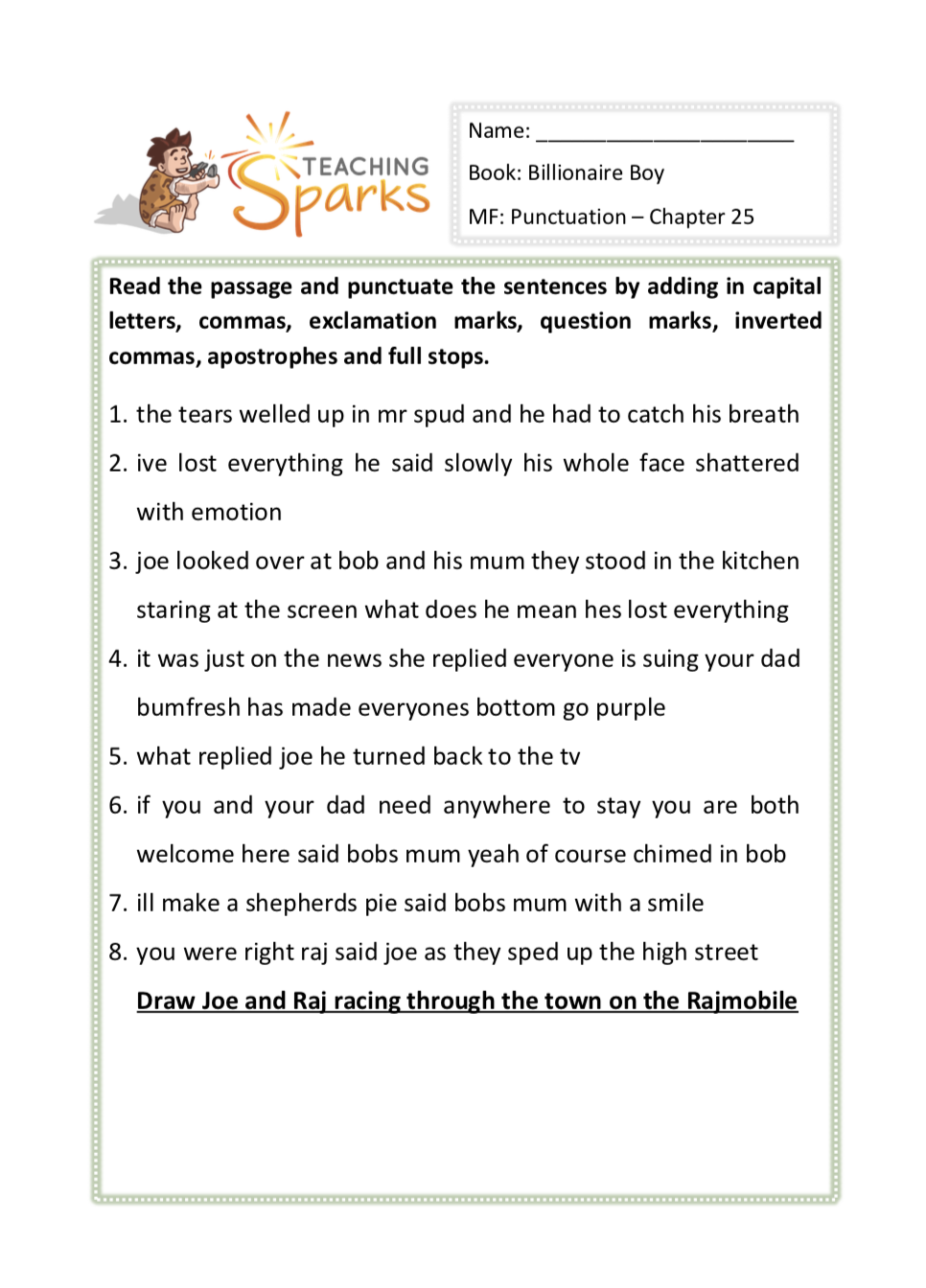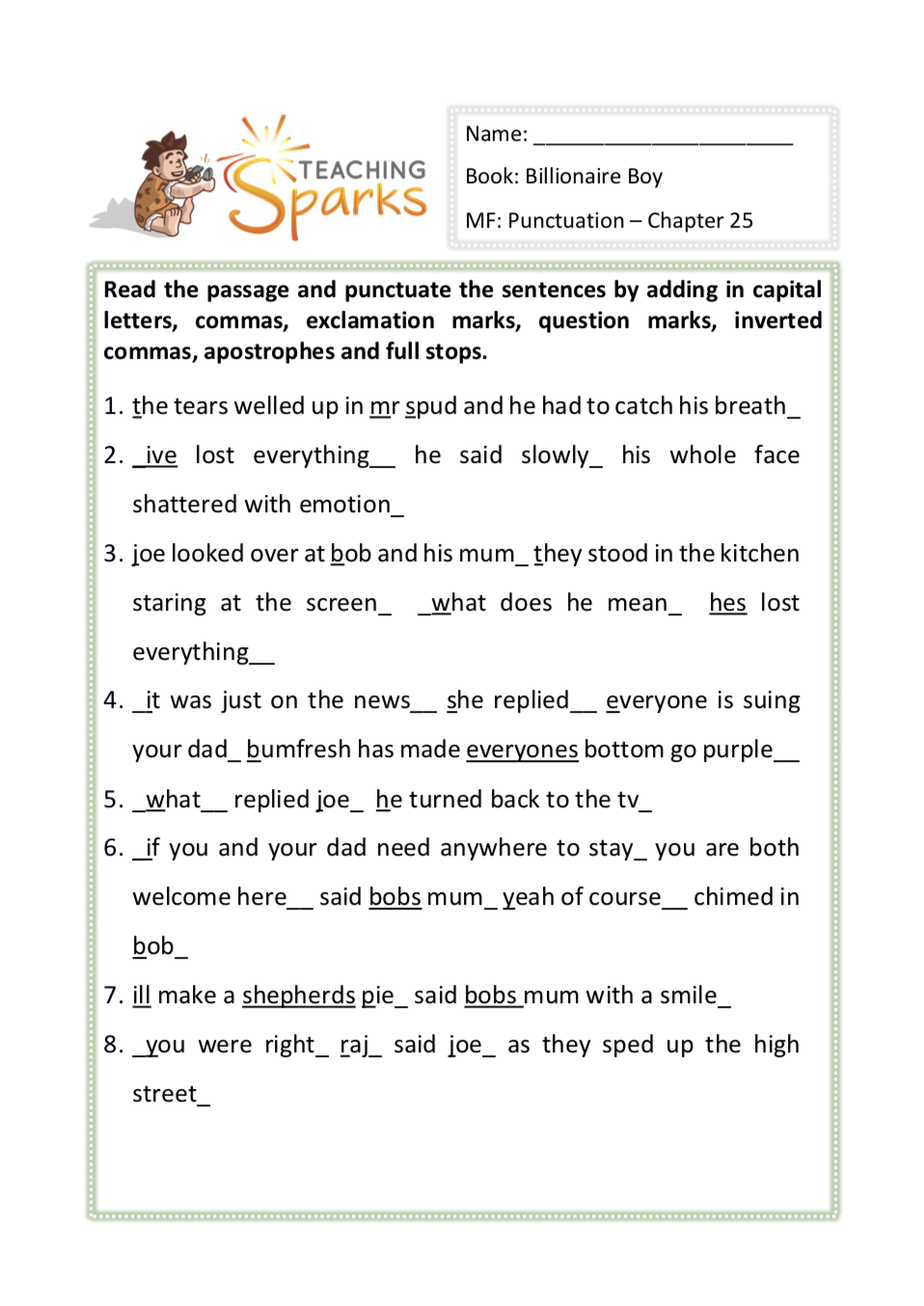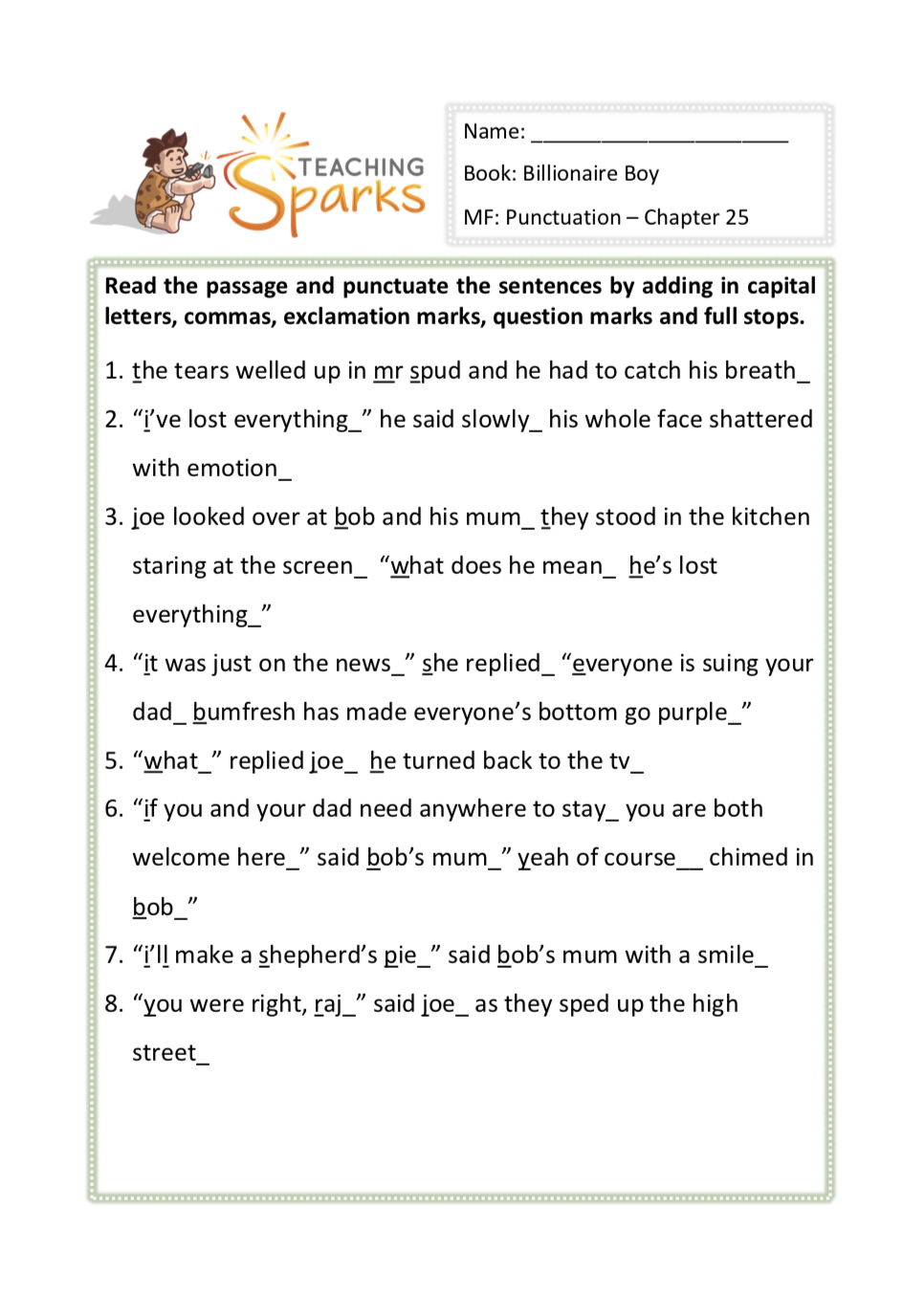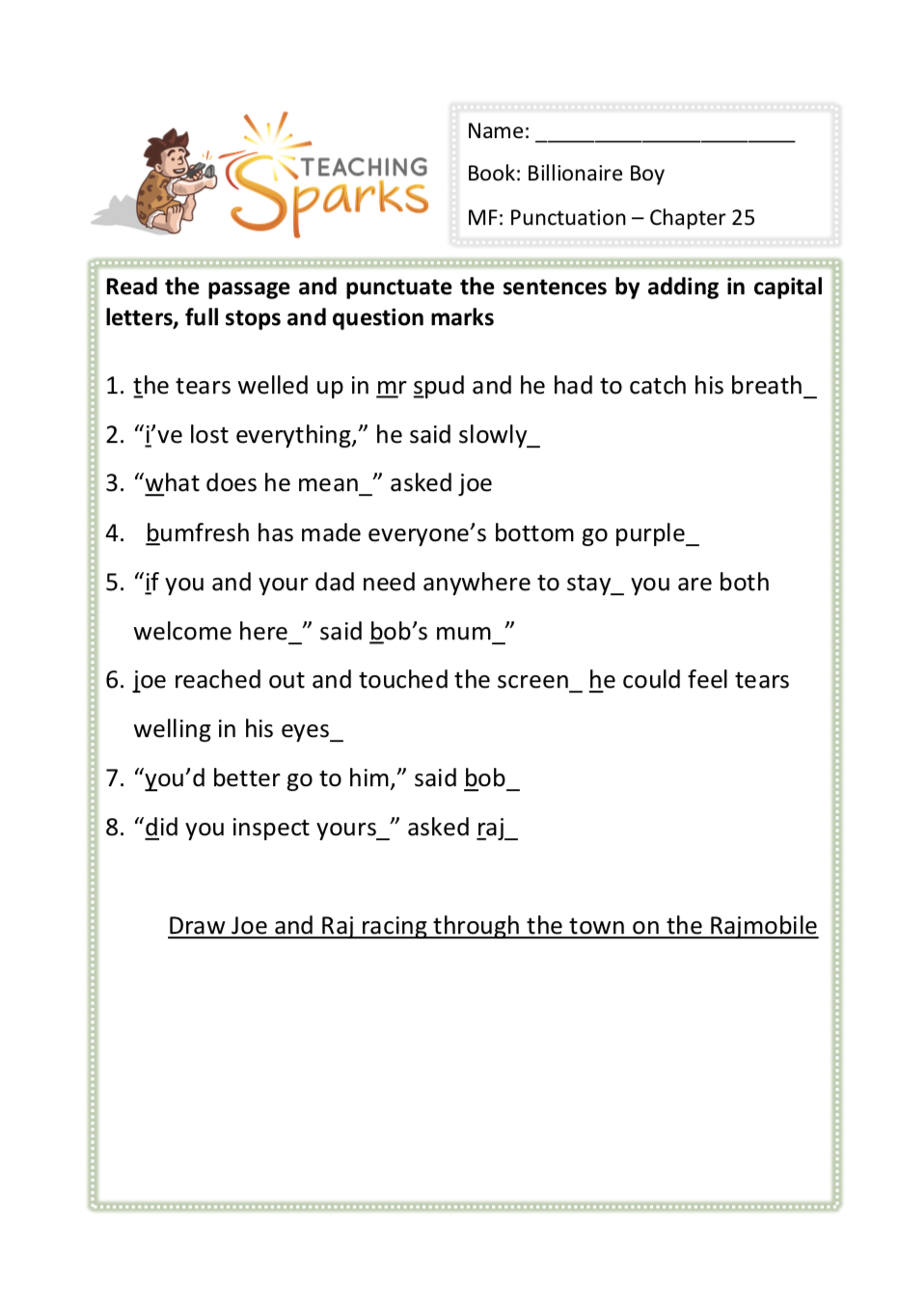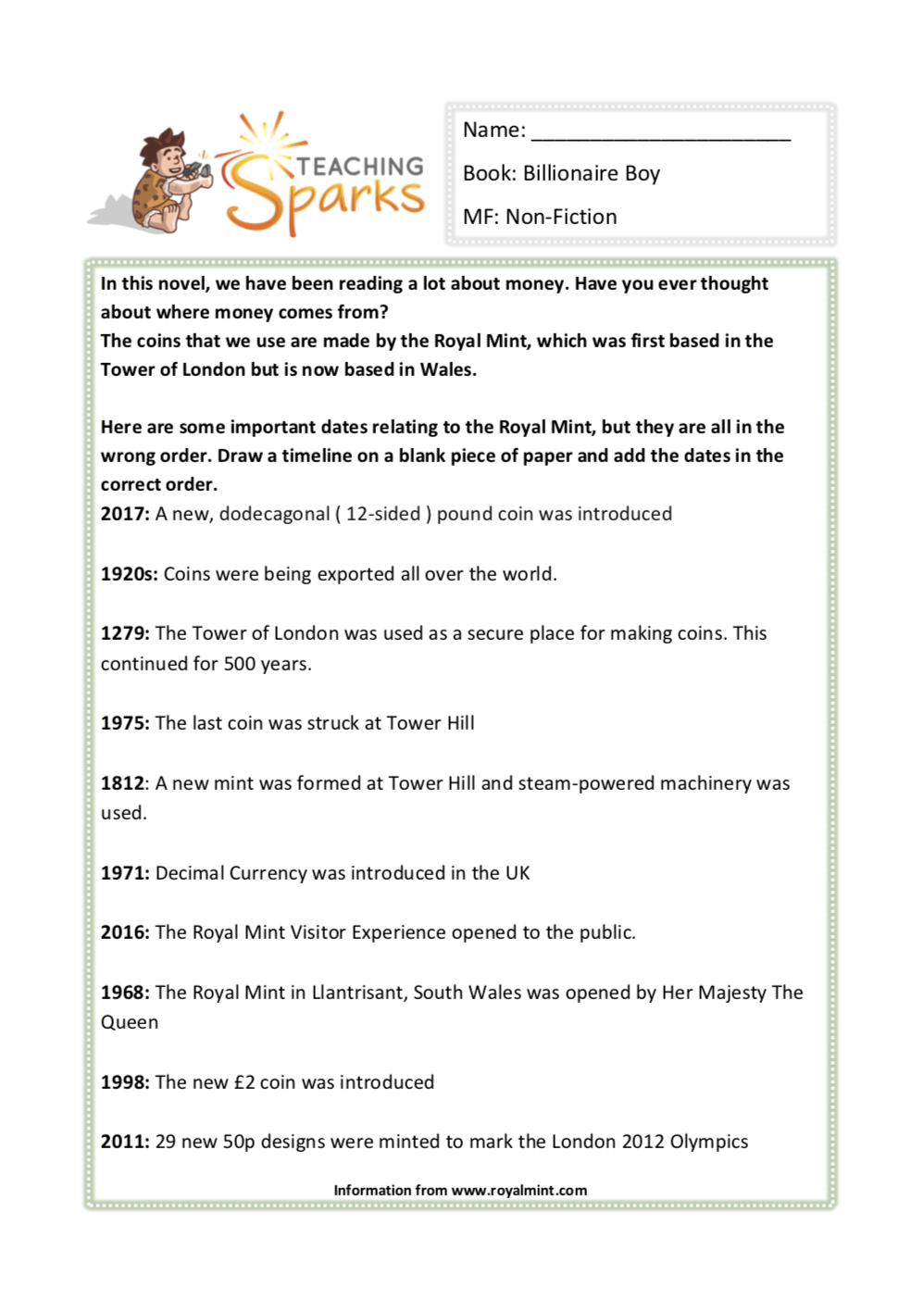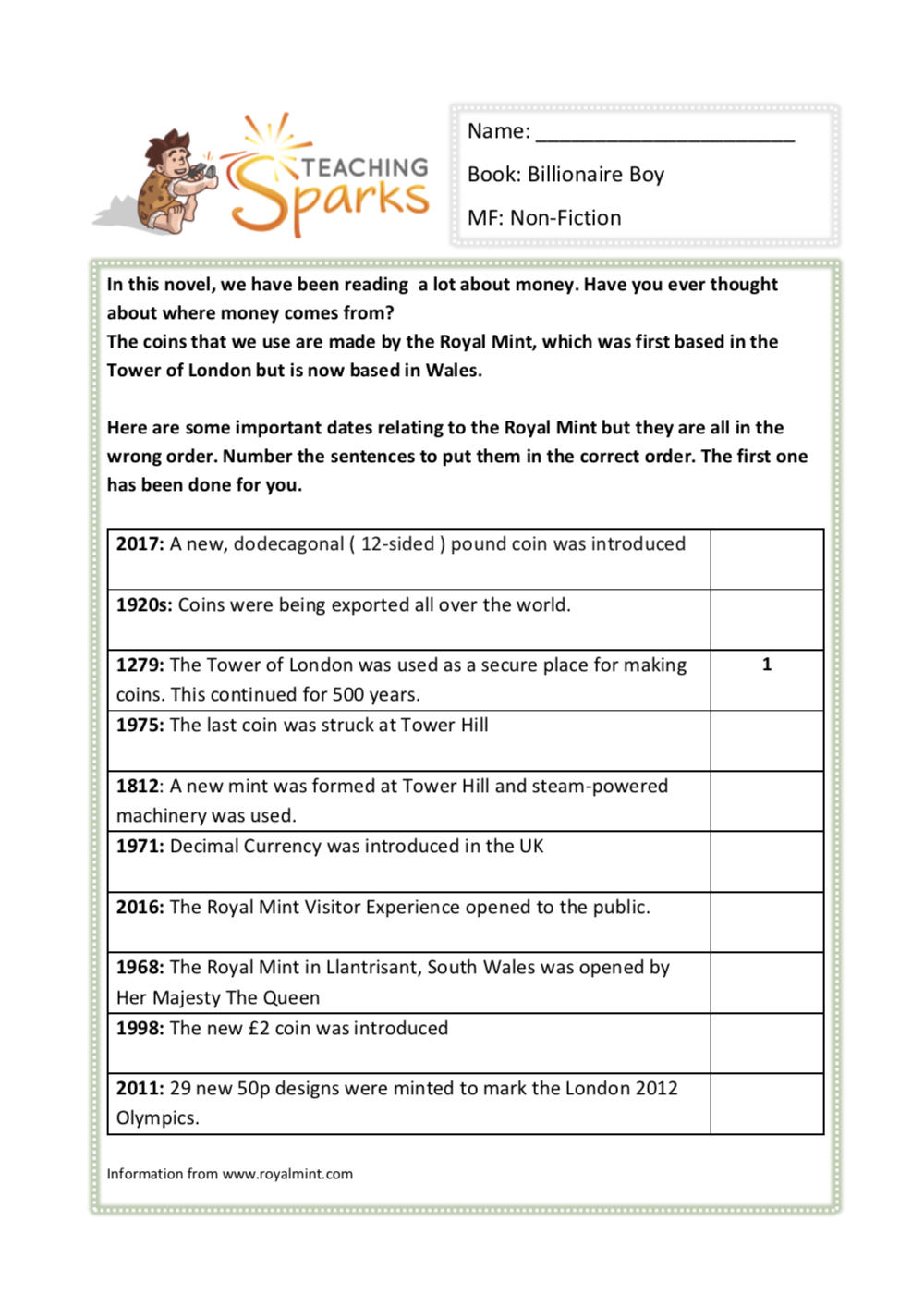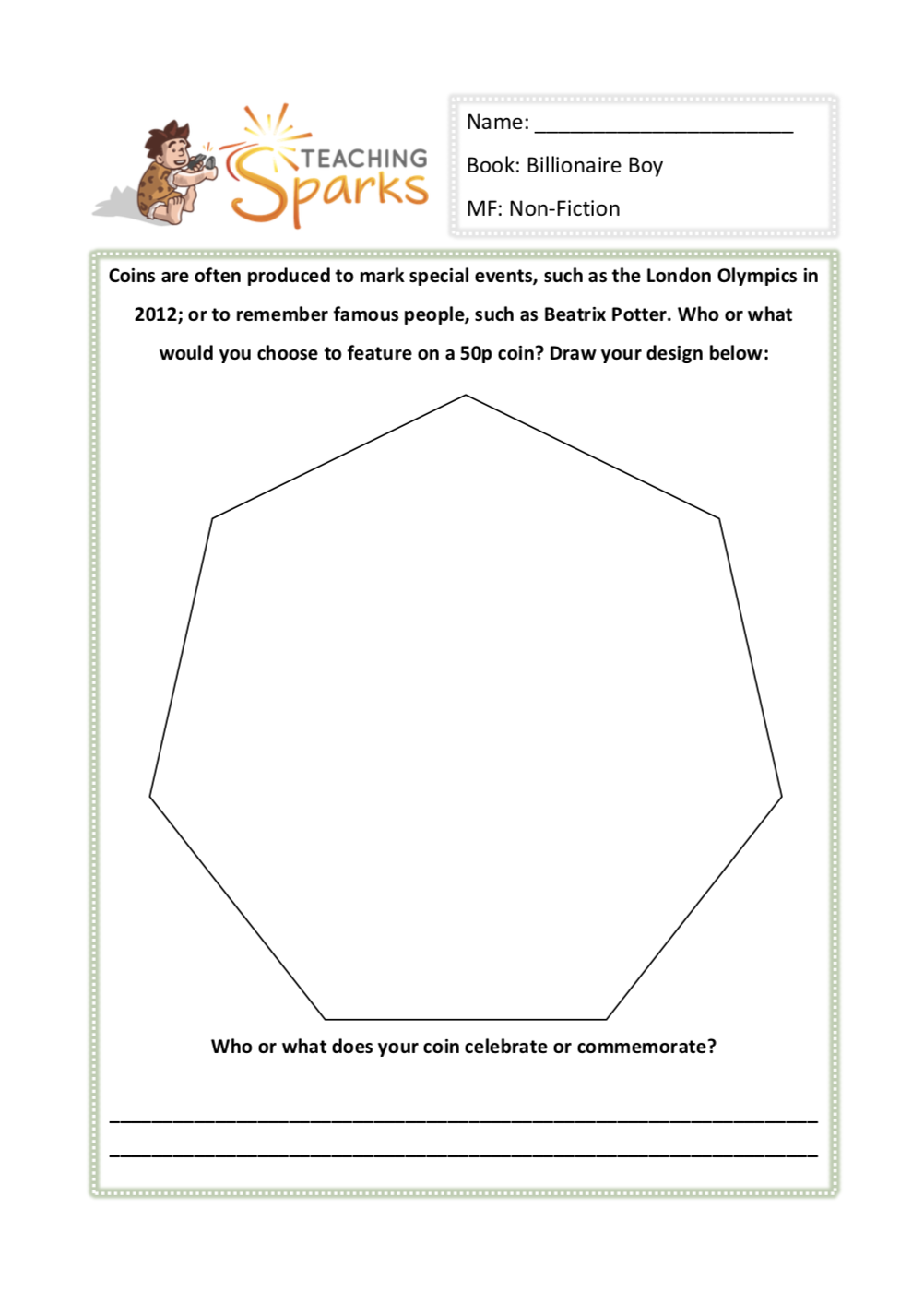Billionaire Boy
Billionaire Boy by David Walliams
Billionaire Boy is a humorous, touching and brilliant new fable from David Walliams, number one bestselling author.
They book follows man character, Joe, who has a lot of reasons to be happy. About a billion of them, in fact.
You see, Joe’s rich. Really, really rich. Joe’s got his own bowling alley, his own cinema, even his own butler who is also an orangutan. He’s the wealthiest twelve-year-old in the land.
Of course, Joe has completely everything he could possibly want. But there’s just one thing he really needs: A friend.
Main Focus: Descriptive Writing
This is a descriptive writing activity linked to chapter 1 of Billionaire Boy by David Walliams.
The first line of this novel asks, ‘Have you ever wondered what it would like to have a million pounds?’ Your class will write a paragraph to describe what they would buy if they had one million pounds to spend.
They must:
- Include plenty of detail in your writing.
- Begin your sentences in different ways.
- Use a variety of adjectives.
- Check your spelling and grammar carefully.
Main Focus: Comprehension - Chapter 2
This is a comprehension resources that focuses on chapter 2 of Billionaire Boy.
This comprehension resource is differentiated and is aimed at Year 3 and Year 4 classes.
Your class must read the chapter and answer the questions as best as they can. Questions vary from retrieval, inference, interpretation and more.
Unlock ResourceMain Focus: Vocabulary Extension - Chapter 3
This is a resource linked to the fantastic vocabulary used in chapter 3 of the book.
Read chapter 3 with your class and discuss the following words…
dispersed, marginally, glared, loitered, verified, ordeal, humiliate, triumphantly, undeterred, mocking, twinge, determined, appearance, ultimate & artefact.
Once the chapter has been read and words and meanings discussed, your class can complete our vocabulary resource. The children will use the word bank to complete the sentences. The resource has been differentiated four ways.
Unlock ResourceMain Focus: Inverted Commas
This resource focuses on chapter 4 of Billionaire Boy and inverted commas.
Your Year 3 / Year 4 class will read through the paragraphs/sentences and highlight or insert the inverted commas to show when direct speech begins and ends.
We have five differentiated resources for this speech marks activities so you can choose which best suits your LKS2 class.
Unlock ResourceMain Focus: Synonyms for 'said'
This resource focuses on synonyms and chapter 5 of the book.
Synonyms are words which have the same or similar meanings. We can use synonyms to make our writing more interesting. Your class will choose a synonym to replace the word said in each of the sentences or they will highlight the synonyms for said in the sentences.
Your class can use your own ideas or they can select the synonyms from the word bank.
Main Focus: Adverbs - Chapter 7 and 8
This resource encourages your class to search for the adverbs within the sentences from chapter 7 and 8.
Your class will then write the adverbs within a new context to show their understanding.
Unlock ResourceMain Focus: Suffixes -ing - Chapters 13-15
This resource helps your class develop understanding of the suffix -ing and the rules when using it.
Sometimes you need to add a double consonant, drop the ‘e’ or just add ing.
A suffix is a group of letters which are added to the end of a word to make a new word. Your class will use the table to sort these words that can end in the suffix -ing. The words can all be found in chapters 13-15.
Unlock ResourceMain Focus: Apostrophes - Chapter 17
In this resource, your class will read the sentences taken from chapter 17 of Billionaire Boy.
Your class will add the apostrophe to the words and explain whether it has been used to show possession or a contraction.
Unlock ResourceMain Focus: Punctuation - Chapter 25
This is a punctuation activity aimed at Year 3 and Year 4 classes that focuses on a passage from chapter 25 of the book.
Your KS2 class will read the passage and punctuate the sentences by adding in capital letters, commas, exclamation marks, question marks, inverted commas, apostrophes and full stops.
Unlock ResourceMain Focus: Non-Fiction - Coins Timeline
In this novel, we have been reading a lot about money. Have you ever thought about where money comes from?
The coins that we use are made by the Royal Mint, which was first based in the Tower of London but is now based in Wales.
Here are some important dates relating to the Royal Mint, but they are all in the wrong order.
Your class will draw a timeline on a blank piece of paper and add the dates in the correct order or they can number the dates on the resource provided.
Unlock Resource
